Speakers
The SeaWilding Conference brings together some of the most distinguished and reputable experts in their field, who will share their knowledge, experiences and perspectives on different axes of progress and their implications in the field of ocean conservation and restoration.
Speaker
CARLOS
DUARTE
Distinguished Professor of Marine Science at King Abdullah University of Science and Technology
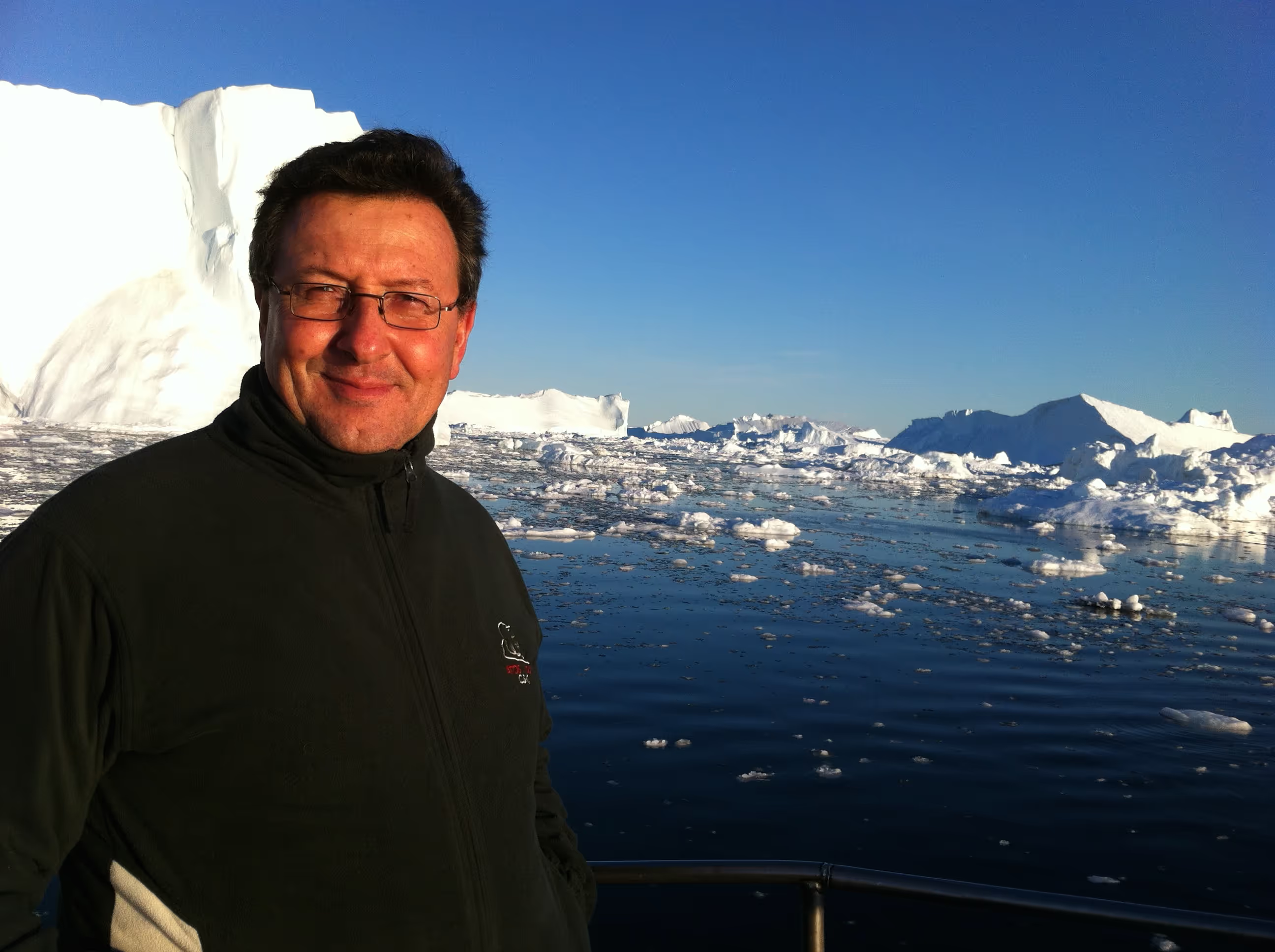


Graduated in Biology from the Autonomous University of Madrid in 1982, he received his doctorate five years later at McGill University in Canada. He has dedicated his career to research on aquatic, marine and freshwater ecosystems, the functioning of the oceans on a planetary level, as well as in lakes, reservoirs, rivers, streams, wetlands and estuaries in collaboration with international institutions such as the UN, FAO and the World Bank. He has been an adjunct professor at the Institute of Marine Sciences in Barcelona, at the Center for Advanced Studies in Blanes and has worked as a research professor at the Mediterranean Institute for Advanced Studies (IMEDEA), all of which are dependent on the Higher Council for Scientific Research (CSIC).
He led the first Spanish expedition to the Arctic Ocean and also the Malaspina Expedition (2010-2011) aboard the Hespérides (A-33). In 2014, he worked for the Oceans Institute at the University of Western Australia to research coral reefs. He left the CSIC to work on a project in the Red Sea at the King Abdullah University of Science and Technology of Saudi Arabia. He has published more than 400 scientific articles, several books and book chapters. Between 2008 and 2010, he was president of the American Association of Limnology and Oceanography.
He has received the Alejandro Malaspina National Research Award in 2007, the King James I Prize for Research in Nature Protection in 2009, the Ramon Margalef Ecology Award in 2019 and the BBVA Foundation Frontiers of Knowledge Award in the area of Ecology and Conservation Biology in 2020. In 2010, he was named an honorary doctorate by the University of Quebec in Montreal and later by the University of Utrecht.
He led the first Spanish expedition to the Arctic Ocean and also the Malaspina Expedition (2010-2011) aboard the Hespérides (A-33). In 2014, he worked for the Oceans Institute at the University of Western Australia to research coral reefs. He left the CSIC to work on a project in the Red Sea at the King Abdullah University of Science and Technology of Saudi Arabia. He has published more than 400 scientific articles, several books and book chapters. Between 2008 and 2010, he was president of the American Association of Limnology and Oceanography.
He has received the Alejandro Malaspina National Research Award in 2007, the King James I Prize for Research in Nature Protection in 2009, the Ramon Margalef Ecology Award in 2019 and the BBVA Foundation Frontiers of Knowledge Award in the area of Ecology and Conservation Biology in 2020. In 2010, he was named an honorary doctorate by the University of Quebec in Montreal and later by the University of Utrecht.
AROUND THE WEB:
speaker
Josep L. Pelegrí
Physical oceanographer and researcher at the Institute of Marine Sciences at CSIC, specialized in ocean circulation and climate change.
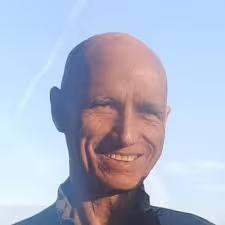


Dr. Josep Lluís Pelegrí Llopart holds a degree in Physics and a PhD in Oceanography, currently serving as Research Professor at the Institute of Marine Sciences (ICM-CSIC) in Barcelona. His academic background combines a solid foundation in physical sciences with specialization in physical oceanography, enabling him to develop a distinguished career in the study of oceanic processes and their impact on the global climate system. During his tenure as Director of ICM (2020-2024), the center obtained the prestigious Severo Ochoa excellence accreditation, a recognition held by only thirty research centers in Spain.
His research focuses on the study of ocean circulation and its influence on planetary metabolism across multiple spatial and temporal scales, with particular emphasis on understanding the physical processes governing Atlantic Ocean dynamics. Among his most notable research lines are studies on zonal currents in the equatorial Atlantic Ocean, meridional transport of water masses, coastal upwelling processes off Northwest Africa, and the impact of climate change on oceanic systems. His interdisciplinary approach integrates in situ observations, satellite data, and numerical modeling to understand complex ocean-atmosphere interaction mechanisms.
With a scientific production of over 150 indexed articles in high-impact journals and four edited specialized books, Dr. Pelegrí has consolidated his position as an international reference in physical oceanography. He has supervised more than 40 master's and doctoral theses, demonstrating his commitment to training new generations of oceanographers. His field experience includes participation in numerous oceanographic campaigns, serving as Chief Scientist in eight expeditions aboard research vessels such as García del Cid, Hespérides, and Sarmiento de Gamboa.
His scientific outreach work and commitment to public awareness about oceanic challenges has led him to participate in multiple conferences for the general public, educational programs, and media collaborations. Dr. Pelegrí considers Earth as an optimized complex system of which we are part, promoting a holistic vision of oceanographic research that emphasizes the urgent need to improve ocean conservation status to ensure planetary sustainability in the context of global climate change.
His research focuses on the study of ocean circulation and its influence on planetary metabolism across multiple spatial and temporal scales, with particular emphasis on understanding the physical processes governing Atlantic Ocean dynamics. Among his most notable research lines are studies on zonal currents in the equatorial Atlantic Ocean, meridional transport of water masses, coastal upwelling processes off Northwest Africa, and the impact of climate change on oceanic systems. His interdisciplinary approach integrates in situ observations, satellite data, and numerical modeling to understand complex ocean-atmosphere interaction mechanisms.
With a scientific production of over 150 indexed articles in high-impact journals and four edited specialized books, Dr. Pelegrí has consolidated his position as an international reference in physical oceanography. He has supervised more than 40 master's and doctoral theses, demonstrating his commitment to training new generations of oceanographers. His field experience includes participation in numerous oceanographic campaigns, serving as Chief Scientist in eight expeditions aboard research vessels such as García del Cid, Hespérides, and Sarmiento de Gamboa.
His scientific outreach work and commitment to public awareness about oceanic challenges has led him to participate in multiple conferences for the general public, educational programs, and media collaborations. Dr. Pelegrí considers Earth as an optimized complex system of which we are part, promoting a holistic vision of oceanographic research that emphasizes the urgent need to improve ocean conservation status to ensure planetary sustainability in the context of global climate change.
AROUND THE WEB:
speaker
Purificació Canals
Marine biologist and conservationist, president emeritus of MedPAN and specialist in Mediterranean marine protected area management.



Dr. Purificació Canals i Ventín holds a degree in Biological Sciences from the University of Barcelona and a PhD in Biochemistry and Physiology from the same institution. She has developed a professional career that combines research in biological sciences with social commitment to environmental issues and nature conservation. Her interdisciplinary academic background has enabled her to consolidate a comprehensive perspective on Mediterranean marine ecosystems, positioning her as one of the leading European references in MPA management and marine conservation at international scale.
Her work focuses on Mediterranean marine biodiversity conservation through strengthening marine protected area networks and promoting international cooperation in marine management. Her most notable work lines include developing ecological connectivity strategies between MPAs, implementing sustainable financing frameworks for marine conservation, and facilitating collaborative governance processes that integrate managers, scientists, administrations, and local communities. Her approach is based on understanding the Mediterranean as an integrated ecological system requiring coordinated conservation strategies at basin scale, transcending national borders to address regional ecosystem challenges.
For more than a decade (2009-2024), Canals chaired MedPAN, the Mediterranean Network of Marine Protected Area Managers, transforming it into the leading non-governmental organization dedicated to marine protection in the Mediterranean. Under her leadership, MedPAN expanded its membership to over 100 marine protected areas in 21 Mediterranean countries, established international cooperation frameworks for climate change adaptive management, and developed innovative sustainable financing mechanisms through initiatives such as MedFund. Her management was fundamental for positioning marine protected areas as essential tools for climate resilience and Mediterranean marine biodiversity conservation.
In 2020 she received the Creu de Sant Jordi, one of the highest distinctions awarded by the Government of Catalonia, in specific recognition of her work in nature conservation and Mediterranean MPA management. Her commitment to marine conservation has led her to leadership roles in multiple international organizations, including the presidency of DEPANA (League for the Defense of Natural Heritage) for 16 years (1994-2010) and the vice-presidency of the International Union for Conservation of Nature (IUCN).As an international consultant specialized in marine and coastal conservation, she has coordinated transatlantic and ocean governance projects, contributing to the development of marine conservation policies that integrate ecological, social, and economic objectives at Mediterranean and global scales.
Her work focuses on Mediterranean marine biodiversity conservation through strengthening marine protected area networks and promoting international cooperation in marine management. Her most notable work lines include developing ecological connectivity strategies between MPAs, implementing sustainable financing frameworks for marine conservation, and facilitating collaborative governance processes that integrate managers, scientists, administrations, and local communities. Her approach is based on understanding the Mediterranean as an integrated ecological system requiring coordinated conservation strategies at basin scale, transcending national borders to address regional ecosystem challenges.
For more than a decade (2009-2024), Canals chaired MedPAN, the Mediterranean Network of Marine Protected Area Managers, transforming it into the leading non-governmental organization dedicated to marine protection in the Mediterranean. Under her leadership, MedPAN expanded its membership to over 100 marine protected areas in 21 Mediterranean countries, established international cooperation frameworks for climate change adaptive management, and developed innovative sustainable financing mechanisms through initiatives such as MedFund. Her management was fundamental for positioning marine protected areas as essential tools for climate resilience and Mediterranean marine biodiversity conservation.
In 2020 she received the Creu de Sant Jordi, one of the highest distinctions awarded by the Government of Catalonia, in specific recognition of her work in nature conservation and Mediterranean MPA management. Her commitment to marine conservation has led her to leadership roles in multiple international organizations, including the presidency of DEPANA (League for the Defense of Natural Heritage) for 16 years (1994-2010) and the vice-presidency of the International Union for Conservation of Nature (IUCN).As an international consultant specialized in marine and coastal conservation, she has coordinated transatlantic and ocean governance projects, contributing to the development of marine conservation policies that integrate ecological, social, and economic objectives at Mediterranean and global scales.
AROUND THE WEB:
speaker
Alister Scott
Executive Director of the Global Rewilding Alliance, global catalyst of the growing rewilding movement
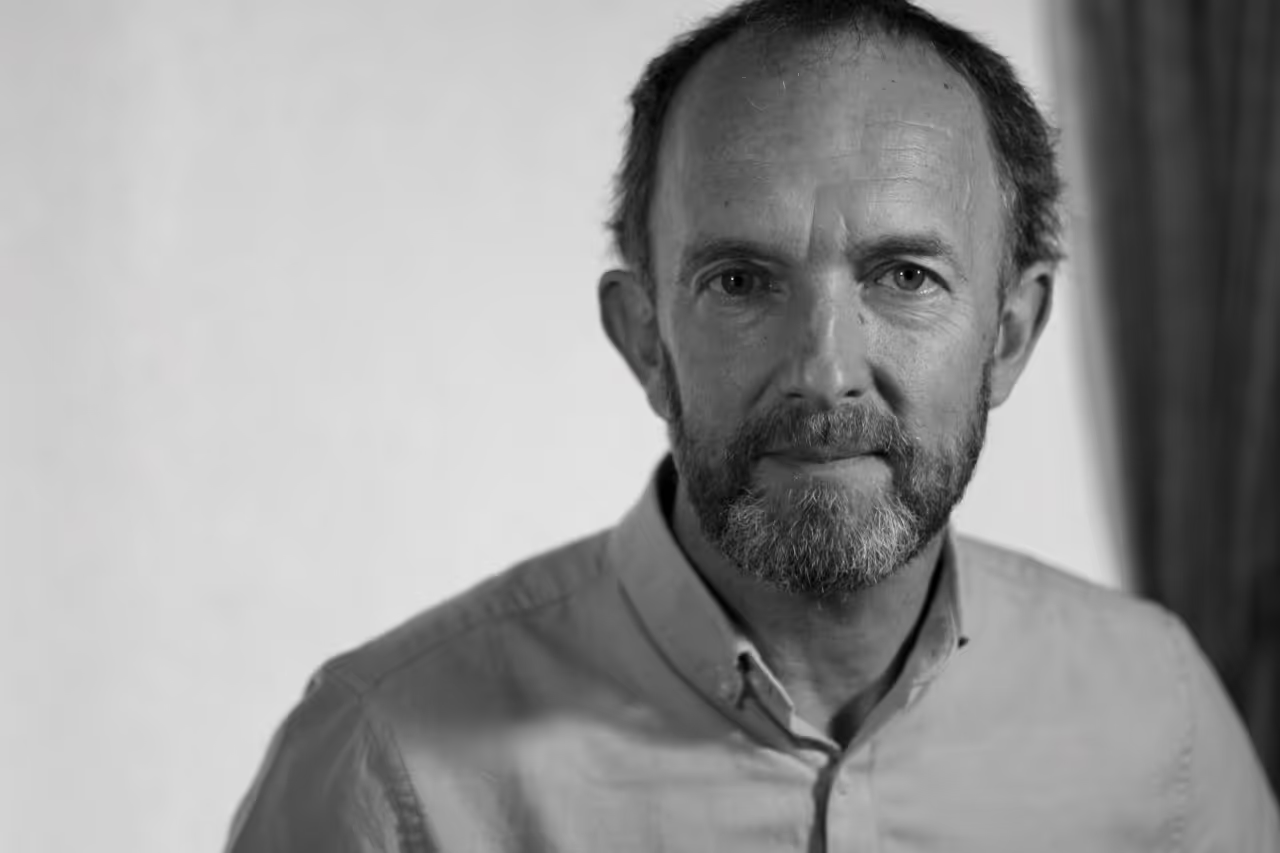


Alister Scott is the Executive Director of the Global Rewilding Alliance, the global catalyst of the growing rewilding movement with huge ambition to mainstream rewilding in science, policy and practice globally. The Alliance's 260+ partners are influencing a combined area equivalent to half of the land area of the US in over 125 countries, and twice that in the oceans.
Alister spent 20 years on the interface between science and policy, has a doctorate from the Science Policy Research Unit at the University of Sussex, and then spent the next 20 years supporting catalysts and their teams - people who are making big change happen. Alister is an Honorary Professor of Practice at University College London, proud father of two engaged adults, widower, wild forest gardener and 'enthusiastic' plant-based cook.
Alister spent 20 years on the interface between science and policy, has a doctorate from the Science Policy Research Unit at the University of Sussex, and then spent the next 20 years supporting catalysts and their teams - people who are making big change happen. Alister is an Honorary Professor of Practice at University College London, proud father of two engaged adults, widower, wild forest gardener and 'enthusiastic' plant-based cook.
AROUND THE WEB:
Speaker
Sebastian Villasante
Environmental economist and distinguished researcher specialized in transformations of marine social-ecological systems and ocean equity.
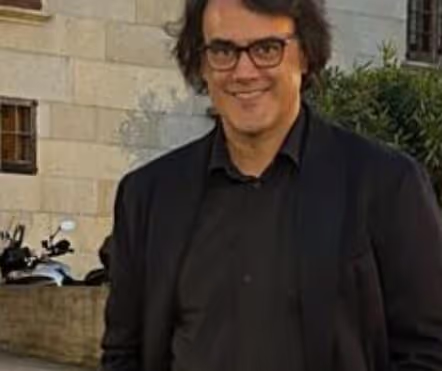


Dr. Sebastian Villasante Larramendi holds a PhD in Economics from the University of Santiago de Compostela (2009) with the doctoral thesis "Magnitude and implications of the Common Fisheries Policy: application of sustainability indicators to the metabolism of marine ecosystems." He currently serves as Distinguished Researcher and Director of the EqualSea Laboratory at the University of Santiago de Compostela, while also holding the position of Karl-Göran Mäler Scholar at the Beijer Institute of Ecological Economics of the Royal Swedish Academy of Sciences. His academic background combines economics, ecology, and social sciences, enabling him to develop innovative interdisciplinary approaches for marine systems research.
His research focuses on social-ecological transformations of marine and coastal ecosystems, with particular emphasis on assessing ocean equity, climate change, and marine ecosystem services. His most notable research lines include the development of game theoretical models to study non-cooperative fisheries management, economic valuation of marine ecosystem services, and analysis of spatial conflicts in marine uses. He combines quantitative and qualitative methods to understand linkages between natural and social components of marine systems at multiple scales, from local to global.
Dr. Villasante has received prestigious international recognition, including the Yamamoto Prize (Japan International Fisheries Research Society) together with Dr. Rashid Sumaila for his pioneering work on non-cooperative fisheries management models in the Southwest Atlantic Ocean. In 2020, he obtained a Consolidator Grant from the European Research Council (ERC) worth two million euros for the EQUALSEA project, focused on transformative adaptation towards ocean equity. With over 130 scientific publications and more than 9,400 citations, he has consolidated his position as an international leader in marine and fisheries economics.
His commitment to the science-policy interface is reflected in his active participation in high-level international initiatives. He serves as Coordinating Lead Author of the IPBES Global Assessment on Transformative Change, Co-Chair of the PECS Program on Ocean Equity for Sustainable Futures, and Scientific Expert of the Earth Commission. He founded the ICES Working Group on Resilience and Marine Ecosystem Services and coordinated the Working Group on Monetary Valuation of Ecosystem Services of the Ecosystem Services Partnership, demonstrating his leadership in creating international scientific networks and his capacity to influence global ocean policies.
His research focuses on social-ecological transformations of marine and coastal ecosystems, with particular emphasis on assessing ocean equity, climate change, and marine ecosystem services. His most notable research lines include the development of game theoretical models to study non-cooperative fisheries management, economic valuation of marine ecosystem services, and analysis of spatial conflicts in marine uses. He combines quantitative and qualitative methods to understand linkages between natural and social components of marine systems at multiple scales, from local to global.
Dr. Villasante has received prestigious international recognition, including the Yamamoto Prize (Japan International Fisheries Research Society) together with Dr. Rashid Sumaila for his pioneering work on non-cooperative fisheries management models in the Southwest Atlantic Ocean. In 2020, he obtained a Consolidator Grant from the European Research Council (ERC) worth two million euros for the EQUALSEA project, focused on transformative adaptation towards ocean equity. With over 130 scientific publications and more than 9,400 citations, he has consolidated his position as an international leader in marine and fisheries economics.
His commitment to the science-policy interface is reflected in his active participation in high-level international initiatives. He serves as Coordinating Lead Author of the IPBES Global Assessment on Transformative Change, Co-Chair of the PECS Program on Ocean Equity for Sustainable Futures, and Scientific Expert of the Earth Commission. He founded the ICES Working Group on Resilience and Marine Ecosystem Services and coordinated the Working Group on Monetary Valuation of Ecosystem Services of the Ecosystem Services Partnership, demonstrating his leadership in creating international scientific networks and his capacity to influence global ocean policies.
AROUND THE WEB:
speaker
Stelios Katsanevakis
Marine ecologist expert in marine conservation and the impacts of biological invasions on biodiversity and ecosystem services.
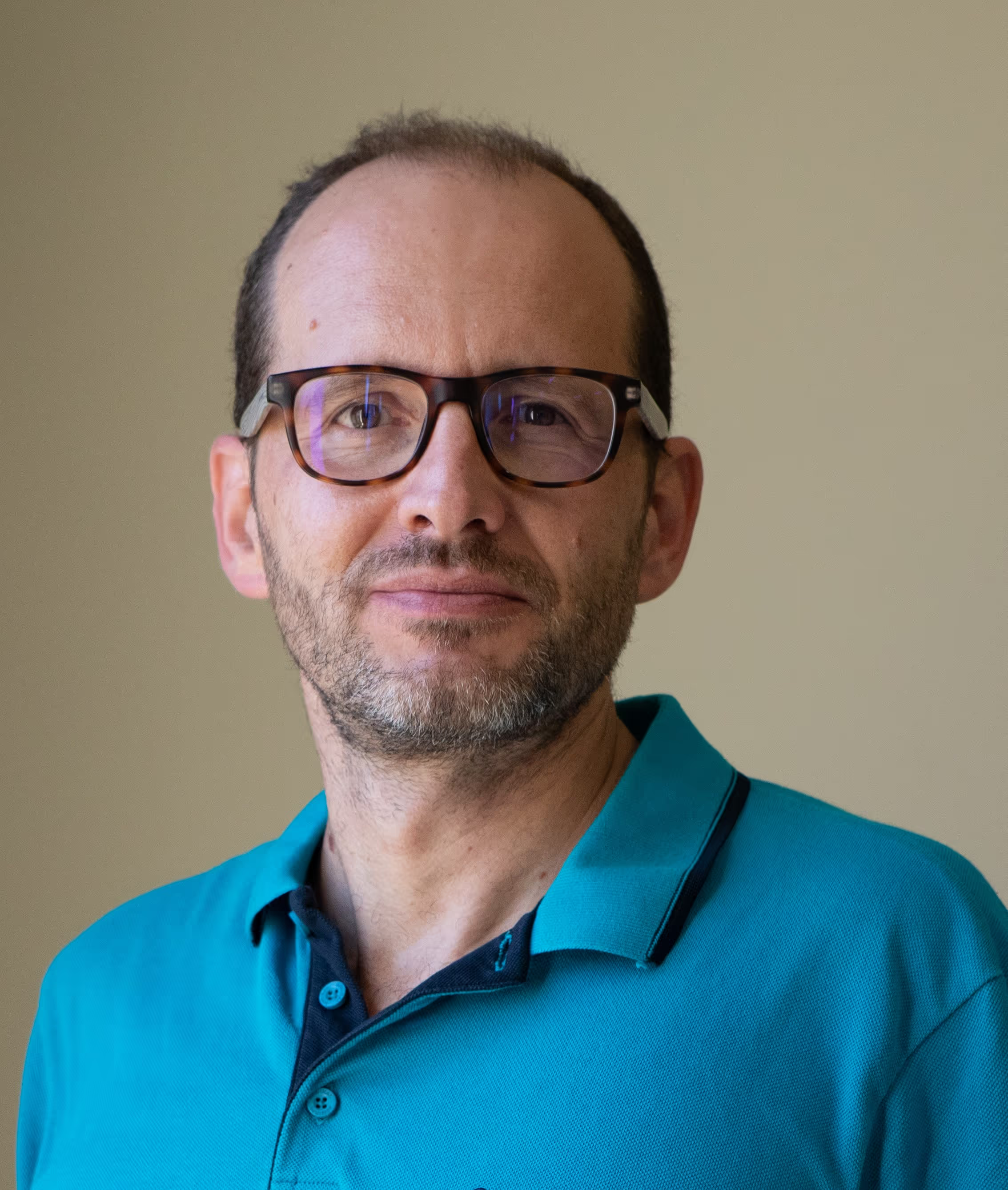


Stelios Katsanevakis is Professor of Marine Ecology in the Department of Marine Sciences at the University of the Aegean, Greece. He previously served at the Hellenic Centre for Marine Research and the European Commission’s Joint Research Centre.
His academic background reflects a solid interdisciplinary foundation: he obtained his Mechanical Engineering degree, subsequently completed a Master's in Oceanography at the University of Athens, where he also pursued his PhD in Biological Oceanography.
His research focuses on marine conservation ecological monitoring, and the impacts of biological invasions on biodiversity and ecosystem services. He has coordinated or contributed as principal researcher to over 50 research projects and chaired the COST Action MarCons (“Advancing Marine Conservation in the European and Contiguous Seas”). He currently coordinates the Horizon Europe project GuardIAS (“Guarding European Waters from Invasive Alien Species”).
He is (co)author of more than 245 articles in international peer-reviewed journals, with over 20,000 citations, placing him among the top 1% of scientists worldwide in Marine Biology according to Scopus standardized metrics.
His work has been fundamental in advancing understanding of Mediterranean biological invasions, developing systematic conservation methods, and implementing marine spatial management strategies, establishing him as one of the most influential voices in marine ecology and conservation in Europe.
His academic background reflects a solid interdisciplinary foundation: he obtained his Mechanical Engineering degree, subsequently completed a Master's in Oceanography at the University of Athens, where he also pursued his PhD in Biological Oceanography.
His research focuses on marine conservation ecological monitoring, and the impacts of biological invasions on biodiversity and ecosystem services. He has coordinated or contributed as principal researcher to over 50 research projects and chaired the COST Action MarCons (“Advancing Marine Conservation in the European and Contiguous Seas”). He currently coordinates the Horizon Europe project GuardIAS (“Guarding European Waters from Invasive Alien Species”).
He is (co)author of more than 245 articles in international peer-reviewed journals, with over 20,000 citations, placing him among the top 1% of scientists worldwide in Marine Biology according to Scopus standardized metrics.
His work has been fundamental in advancing understanding of Mediterranean biological invasions, developing systematic conservation methods, and implementing marine spatial management strategies, establishing him as one of the most influential voices in marine ecology and conservation in Europe.
AROUND THE WEB:
speaker
Ana Queirós
Leading marine climate change ecologist developing evidence-based solutions for climate-smart ocean management at the science-policy interface
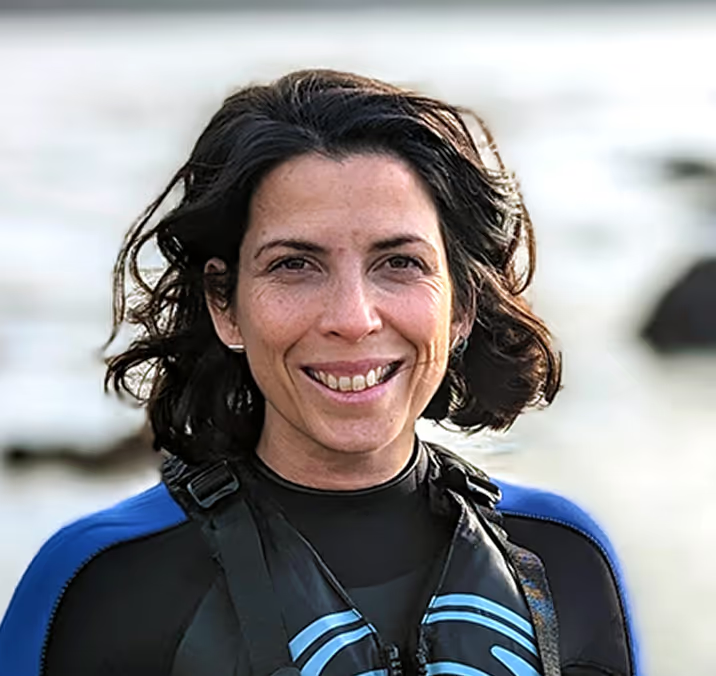


Professor Ana Queirós is the Climate Change Lead at Plymouth Marine Laboratory (United Kingdom), and is an Honorary Professor at the Faculty of Environment, Science and Economy, University of Exeter, United Kingdom.
Ana is an internationally recognised, award winning marine climate change ecologist, leading and advising on a number of globally distributed transdisciplinary research programmes, co-developing capability and evidence-based solutions for climate-smart ocean management that works for nature and people towards sustainable development.
She is involved in high-level processes nationally and internationally, currently providing advice to the UK and UK nation governments, and to the governments of the UK Overseas Territories, having previously advised national and regional governments in Ireland, Philippines, Tanzania, Barbados and others, on spatial management approaches that increase the climate resilience of protected species and habitats, towards climate-smart Marine Spatial Planning, Marine Protected Area siting, Fisheries and Aquaculture management.
She has further provided advice to the CBD, UNFCCC, and sits in scientific and advisory roles in several UN Ocean Decade Programmes and the UN Ocean Decade Collaborative Centre for Coastal Resilience. Ana is one of the climate change leads within the ICES Working Group on Marine Planning and Coastal Zone Management, who have been fostering the development of best practices on climate-smart MSP in Europe and beyond, working across the science-policy interface.
Ana has also worked closely with both marine industries and with NGOs focused on Marine Conservation, including Blue Marine Foundation and, previously, Fair Seas.
She was the AXA IM Award winner in 2022 and works with large multinationals in the private sector, helping develop more sustainable approaches to ocean management.
Ana is an internationally recognised, award winning marine climate change ecologist, leading and advising on a number of globally distributed transdisciplinary research programmes, co-developing capability and evidence-based solutions for climate-smart ocean management that works for nature and people towards sustainable development.
She is involved in high-level processes nationally and internationally, currently providing advice to the UK and UK nation governments, and to the governments of the UK Overseas Territories, having previously advised national and regional governments in Ireland, Philippines, Tanzania, Barbados and others, on spatial management approaches that increase the climate resilience of protected species and habitats, towards climate-smart Marine Spatial Planning, Marine Protected Area siting, Fisheries and Aquaculture management.
She has further provided advice to the CBD, UNFCCC, and sits in scientific and advisory roles in several UN Ocean Decade Programmes and the UN Ocean Decade Collaborative Centre for Coastal Resilience. Ana is one of the climate change leads within the ICES Working Group on Marine Planning and Coastal Zone Management, who have been fostering the development of best practices on climate-smart MSP in Europe and beyond, working across the science-policy interface.
Ana has also worked closely with both marine industries and with NGOs focused on Marine Conservation, including Blue Marine Foundation and, previously, Fair Seas.
She was the AXA IM Award winner in 2022 and works with large multinationals in the private sector, helping develop more sustainable approaches to ocean management.
AROUND THE WEB:
speaker
Zafer Kizilkaya
Engineer and marine conservationist, Goldman Environmental Prize laureate for his pioneering community conservation model in Gökova Bay, Turkey.



Engineer and marine conservationist, winner of the 2023 Goldman Environmental Prize and pioneer in establishing marine protected areas along Turkey's Mediterranean coast.Zafer Kızılkaya developed his passion for the sea inspired by Jacques Cousteau documentaries. He holds a Civil Engineering degree from Middle East Technical University with a Master's in Coastal and Harbor Engineering. After graduating, he spent over ten years working on tropical marine conservation projects in the Indo-Pacific and conducting assignments for National Geographic as a professional underwater photographer and commercial deep-sea diver.
His return to Turkey in 2010 marked a turning point when he witnessed the dramatic deterioration of Gökova Bay. In 2012, he co-founded the Mediterranean Conservation Society (Akdeniz Koruma Derneği), establishing Turkey's first community-managed marine protected area. His innovative co-management model has demonstrated extraordinary results: a 400% increase in local fishers' incomes and significant recovery of native fish populations.
His trajectory has been recognized with multiple international awards, including the Whitley Fund for Nature Award (2013), UNDP Equator Prize (2014), Whitley Gold Award (2017), FAO award for best co-management project for Mediterranean fisheries (2018), and the prestigious Goldman Environmental Prize in 2023, becoming the first Turk to receive this "Green Nobel." In 2020, he achieved a historic expansion of 350 km² of new marine protected areas approved by the Turkish government, consolidating his model as a global reference in community marine conservation.
His return to Turkey in 2010 marked a turning point when he witnessed the dramatic deterioration of Gökova Bay. In 2012, he co-founded the Mediterranean Conservation Society (Akdeniz Koruma Derneği), establishing Turkey's first community-managed marine protected area. His innovative co-management model has demonstrated extraordinary results: a 400% increase in local fishers' incomes and significant recovery of native fish populations.
His trajectory has been recognized with multiple international awards, including the Whitley Fund for Nature Award (2013), UNDP Equator Prize (2014), Whitley Gold Award (2017), FAO award for best co-management project for Mediterranean fisheries (2018), and the prestigious Goldman Environmental Prize in 2023, becoming the first Turk to receive this "Green Nobel." In 2020, he achieved a historic expansion of 350 km² of new marine protected areas approved by the Turkish government, consolidating his model as a global reference in community marine conservation.
AROUND THE WEB:
speaker
Michèle Barbier
Marine biologist and ethics expert who manages European projects on human digital twins at the Inria center at Université Côte d'Azur.
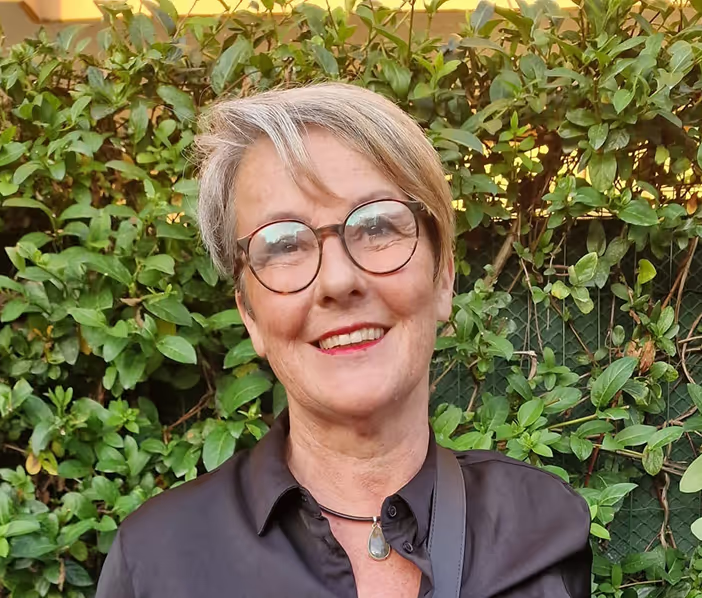


Michele Barbier, PhD, is a biologist by training. She has conducted marine research in France, Tahiti and the United States, and has managed major European scientific projects in marine genomics and biotechnology. She has been an ethics expert for the European Commission since 2017 and an ethics advisor for numerous European projects.
Passionate about the subject, she founded a private institute of science and ethics to promote ethical reflection on innovation in general and the ocean in particular. She now works full-time at the Inria centre at the Université Côte d'Azur in France, where she manages European Union-funded projects on human digital twins, incorporating an ethical approach.
Passionate about the subject, she founded a private institute of science and ethics to promote ethical reflection on innovation in general and the ocean in particular. She now works full-time at the Inria centre at the Université Côte d'Azur in France, where she manages European Union-funded projects on human digital twins, incorporating an ethical approach.
AROUND THE WEB:
speaker
Eduardo Salazar Ortuño
Legal expert specializing in environmental law and legal collaborator of the Mar Menor Law that established the first recognition of legal personality to an ecosystem in Europe.



Eduardo Salazar Ortuño holds a Law Degree from the University of Murcia, where he practiced law specializing in environmental law consulting, and possesses a Master of Laws (LL.M.) from Dresden University, Germany. His academic training is complemented by a university specialization in mediation for legal professionals. He obtained his Doctorate from the University of Murcia in 2018 with the thesis "Access to environmental justice based on the Aarhus Convention: proposals for effective access to justice in environmental conflicts," supervised by professors Santiago M. Álvarez Carreño and other distinguished academics.
He currently serves as Associate Professor of Administrative Law at the Faculty of Law of the University of Murcia and as Guest Professor in the Master's in Environmental Law and Sustainability at the University of Alicante. He has been accredited since May 2021 by the National Agency for Quality Assessment and Accreditation to serve as assistant professor, contracted professor, and professor in private universities. In parallel, he directs the ECOJUSTICIA law firm, where he provides consulting and exercises actions before national and international administrations and courts, collaborating with world-renowned environmental entities such as ELaw, IUCN, and Greenpeace.
His academic trajectory has been recognized with the PRATS CANUT Prize for the best published thesis in environmental law of 2019, awarded by the Rovira i Virgili University of Tarragona. Among his most notable publications is the book "Access to environmental justice based on the Aarhus Convention. Environmental justice for ecological transition" (Thomson Reuters-Aranzadi, 2019), as well as numerous book chapters and articles in specialized journals such as the Aranzadi Environmental Law Review and the Catalonian Environmental Law Review, where he has regularly published analyses on environmental law and policies in the Region of Murcia.
Eduardo Salazar is internationally recognized as one of the legal collaborators of the revolutionary Law 19/2022, of September 30, which granted legal personality to the Mar Menor and its basin, making it the first European ecosystem to obtain rights equivalent to those of natural and legal persons. This extraordinary achievement was accomplished through a Popular Legislative Initiative that gathered more than 600,000 citizen signatures and transformed the Mar Menor from an "object of protection" into a "subject of rights" with legal capacity to defend itself before courts. His expertise in this field has led him to present this innovative model in international forums, including his participation in COP27 as a bearer of this pioneering legislation in rights of nature.
He currently serves as Associate Professor of Administrative Law at the Faculty of Law of the University of Murcia and as Guest Professor in the Master's in Environmental Law and Sustainability at the University of Alicante. He has been accredited since May 2021 by the National Agency for Quality Assessment and Accreditation to serve as assistant professor, contracted professor, and professor in private universities. In parallel, he directs the ECOJUSTICIA law firm, where he provides consulting and exercises actions before national and international administrations and courts, collaborating with world-renowned environmental entities such as ELaw, IUCN, and Greenpeace.
His academic trajectory has been recognized with the PRATS CANUT Prize for the best published thesis in environmental law of 2019, awarded by the Rovira i Virgili University of Tarragona. Among his most notable publications is the book "Access to environmental justice based on the Aarhus Convention. Environmental justice for ecological transition" (Thomson Reuters-Aranzadi, 2019), as well as numerous book chapters and articles in specialized journals such as the Aranzadi Environmental Law Review and the Catalonian Environmental Law Review, where he has regularly published analyses on environmental law and policies in the Region of Murcia.
Eduardo Salazar is internationally recognized as one of the legal collaborators of the revolutionary Law 19/2022, of September 30, which granted legal personality to the Mar Menor and its basin, making it the first European ecosystem to obtain rights equivalent to those of natural and legal persons. This extraordinary achievement was accomplished through a Popular Legislative Initiative that gathered more than 600,000 citizen signatures and transformed the Mar Menor from an "object of protection" into a "subject of rights" with legal capacity to defend itself before courts. His expertise in this field has led him to present this innovative model in international forums, including his participation in COP27 as a bearer of this pioneering legislation in rights of nature.
AROUND THE WEB:
Speaker
Soledad Gallego
Lawyer specialized in environmental law and biodiversity protection, with over 25 years of experience in strategic litigation.
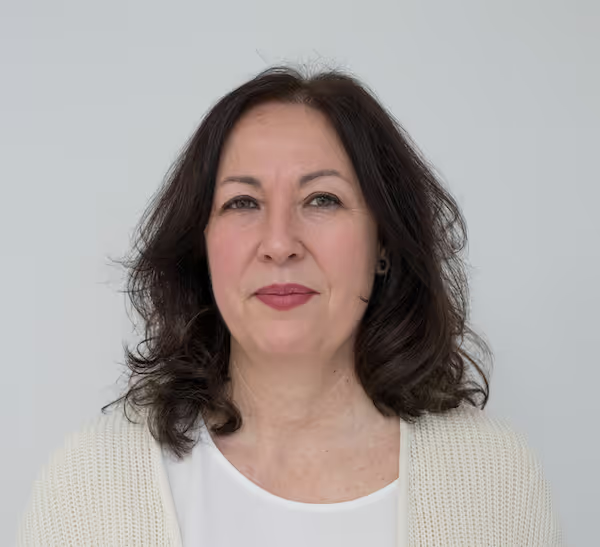


Soledad Gallego Bernad is a lawyer specialized in Environmental Law, with over 25 years of experience in the protection of marine, terrestrial, and freshwater biodiversity. She has built a solid career in the legal defense of nature and environmental rights, both before national courts and in international forums.
Since 2019, she has worked at ClientEarth, and since 2022, she has served as Director of its office for Spain and the Mediterranean. Between 2019 and 2024, she designed and led the organization's Mediterranean legal program, managing an international legal team that drove pioneering litigation and initiatives for the protection of marine mammals, marine protected areas, wetlands, migratory birds, and sustainable fisheries, applying EU Biodiversity Law. Her work has been carried out in close collaboration with scientific and environmental organizations, promoting habitat restoration and sustainable marine governance. This legal work includes, among others, cases to protect marine biodiversity against oil and gas exploration, destructive fishing in protected areas, and threats to migratory routes of birds and cetaceans.
Currently, as Director of ClientEarth for Spain and the Mediterranean, she leads a regional office composed of 20 professionals driving legal and policy transformations in biodiversity conservation, climate change adaptation, and ocean governance in Spain, Portugal, and Mediterranean countries. Her work integrates strategic litigation, policy advocacy, and legal defense, coordinating international strategies to address the triple planetary crisis of climate change, biodiversity loss, and pollution. This legal activity seeks the sustainability of energy and food systems, land use planning, transport and raw materials, as well as the strengthening of the rule of law, human rights, environmental democracy, and economic sustainability.
Before joining ClientEarth, Soledad practiced for 14 years as legal advisor for SEO/BirdLife, defending biodiversity before courts and administrations. In 2008, she founded the law firm "Justicia Ambiental" (Environmental Justice), from where she provided legal counsel to NGOs and citizen groups, promoting collaborative networks between law, science, and civil society. She is an expert in Water Law and Biodiversity Law, areas in which she has extensively researched and published. At ClientEarth, her work expanded to the marine and international sphere. She has produced numerous publications, including a reference manual on national and European jurisprudence on protected areas of the Natura 2000 Network.
Between 2002 and 2005, she held the positions of General Director of Housing, Water, and Land Use Planning in the regional government of Castilla-La Mancha, an experience that provided her with a comprehensive perspective on the public management of natural resources.
Since 2019, she has worked at ClientEarth, and since 2022, she has served as Director of its office for Spain and the Mediterranean. Between 2019 and 2024, she designed and led the organization's Mediterranean legal program, managing an international legal team that drove pioneering litigation and initiatives for the protection of marine mammals, marine protected areas, wetlands, migratory birds, and sustainable fisheries, applying EU Biodiversity Law. Her work has been carried out in close collaboration with scientific and environmental organizations, promoting habitat restoration and sustainable marine governance. This legal work includes, among others, cases to protect marine biodiversity against oil and gas exploration, destructive fishing in protected areas, and threats to migratory routes of birds and cetaceans.
Currently, as Director of ClientEarth for Spain and the Mediterranean, she leads a regional office composed of 20 professionals driving legal and policy transformations in biodiversity conservation, climate change adaptation, and ocean governance in Spain, Portugal, and Mediterranean countries. Her work integrates strategic litigation, policy advocacy, and legal defense, coordinating international strategies to address the triple planetary crisis of climate change, biodiversity loss, and pollution. This legal activity seeks the sustainability of energy and food systems, land use planning, transport and raw materials, as well as the strengthening of the rule of law, human rights, environmental democracy, and economic sustainability.
Before joining ClientEarth, Soledad practiced for 14 years as legal advisor for SEO/BirdLife, defending biodiversity before courts and administrations. In 2008, she founded the law firm "Justicia Ambiental" (Environmental Justice), from where she provided legal counsel to NGOs and citizen groups, promoting collaborative networks between law, science, and civil society. She is an expert in Water Law and Biodiversity Law, areas in which she has extensively researched and published. At ClientEarth, her work expanded to the marine and international sphere. She has produced numerous publications, including a reference manual on national and European jurisprudence on protected areas of the Natura 2000 Network.
Between 2002 and 2005, she held the positions of General Director of Housing, Water, and Land Use Planning in the regional government of Castilla-La Mancha, an experience that provided her with a comprehensive perspective on the public management of natural resources.
AROUND THE WEB:
speaker
Stewart Sarkozy-Banoczy
CEO (a.i.) of World Ocean Council and Co-founder of Okhtapus, expert in ocean resilience, focused on investments, impact & storytelling for oceans, coastlines, islands & cities.



Stewart Sarkozy-Banoczy is the co-founder of Okhtapus Ltd and its affiliate nonprofit, O Lab, as well as the CEO (a.i.) of the World Ocean Council. Stewart is Ocean Fellow at the Center for Ocean Policy and Economics at Northeast Maritime Institute, advisory committee member and BlueSwell mentor for SeaAhead, lead rapporteur for SMILO-the small island organization, and board vice chair of Four Bands Community Fund, which he founded in 2000 on the Cheyenne River Lakota Indian Reservation. He also teaches resilience finance, innovation and storytelling at the International University of Catalunya’s School of Architecture.
Stewart has spent the last ten plus years dedicated to mainstreaming resilience and precovery across sectors and themes, with a passion for the ocean, water systems and breaking down silos between funders, practitioners, and policy makers, especially for urban, island, Indigenous and coastal contexts. Stewart was Global Director, Policy and Investments and co-founder at the Resilient Cities Network, the evolved, city-led network of the 100 Resilient Cities (100RC) program, creating the RCIFunds, co-founding/facilitating R21 and co-founding the Racial Equity through Resilience Community of Practice. During the 100RC period he served in variety of roles in Europe and the Middle East, Latin America and the Caribbean, as well as the co-creator of the Urban Ocean Program. Stewart led the team that developed the 100RC challenge starting in April 2013, through Context Partners, where he was partner and managing director. He is a certified associate in the Waterfront Edge Design Guidelines (WEDG) and served as advisory board member for the Capitol Hill Ocean Week (CHOW). Stewart has formal degrees, certification and training in international business, foreign languages, corporate social responsibility, conservation, and environmental science.
Stewart is also the founder of Precovery Labs, where creativity and community drive impact and awareness for clients like RISE- Coastal Resilience Innovations, Ocean Conservancy, Opportunity Finance Network, NDN Fund/Collective, and Conservatoire d’Littoral, among others. Through Precovery Labs, he is also an active professional documentary and fine art photographer, visualizing stories of change and impact.
Stewart has spent the last ten plus years dedicated to mainstreaming resilience and precovery across sectors and themes, with a passion for the ocean, water systems and breaking down silos between funders, practitioners, and policy makers, especially for urban, island, Indigenous and coastal contexts. Stewart was Global Director, Policy and Investments and co-founder at the Resilient Cities Network, the evolved, city-led network of the 100 Resilient Cities (100RC) program, creating the RCIFunds, co-founding/facilitating R21 and co-founding the Racial Equity through Resilience Community of Practice. During the 100RC period he served in variety of roles in Europe and the Middle East, Latin America and the Caribbean, as well as the co-creator of the Urban Ocean Program. Stewart led the team that developed the 100RC challenge starting in April 2013, through Context Partners, where he was partner and managing director. He is a certified associate in the Waterfront Edge Design Guidelines (WEDG) and served as advisory board member for the Capitol Hill Ocean Week (CHOW). Stewart has formal degrees, certification and training in international business, foreign languages, corporate social responsibility, conservation, and environmental science.
Stewart is also the founder of Precovery Labs, where creativity and community drive impact and awareness for clients like RISE- Coastal Resilience Innovations, Ocean Conservancy, Opportunity Finance Network, NDN Fund/Collective, and Conservatoire d’Littoral, among others. Through Precovery Labs, he is also an active professional documentary and fine art photographer, visualizing stories of change and impact.
AROUND THE WEB:
speaker
Youna
Lyons
Marine Policy Analyst & Ocean Governance Expert
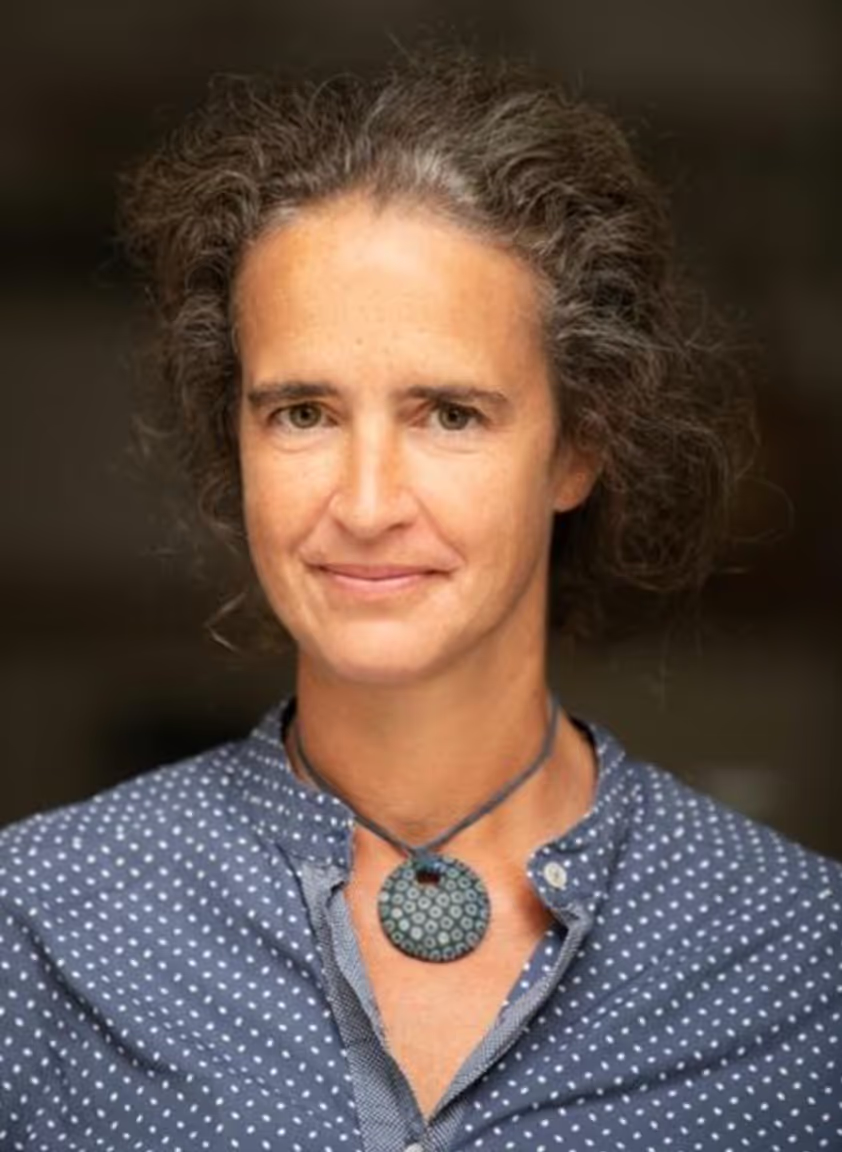


Dr. Youna LBL LYONS is a marine policy analyst, trained in international law and oceanography in Australia, France, and the USA, with 30 years of professional experience. Her focus is on the interface of international law and policy, and marine sciences. Current areas of research include ocean governance coherence, sub-regime articulation and the circulation of norms and concepts on the protection of the marine environment, including in the context of the implementation of the Agreement on Biodiversity Beyond National Jurisdiction (BBNJ) as well as technical issues such marine geoengineering, CCS, ocean monitoring and the assessment of cumulative effects, including, more generally, non-interference with the ecological balance of the marine environment.
As a trustee and Chair of the Advisory Committee on Protection of the Sea (ACOPS), Youna participates in law-making and guidance developments in a number of intergovernmental bodies where ACOPS is an observer. These include OSPAR and the Arctic Council at regional level; and, the IMO on shipping activities, the LC/LP for the placement of waste and other matters in the marine environment and the ISA for seabed mining activities beyond national jurisdiction. Youna is also a coordinating author of the World Ocean Assessment III (governance section).
Academically, she is affiliated with the National University of Singapore (NUS) where she has taken a number of research roles in marine environmental governance for 15 years. She remains an invited teacher with NUS and contributes to research projects. Separately, she is also on editorial committees, advisory boards and a contributor to international research projects.
As a trustee and Chair of the Advisory Committee on Protection of the Sea (ACOPS), Youna participates in law-making and guidance developments in a number of intergovernmental bodies where ACOPS is an observer. These include OSPAR and the Arctic Council at regional level; and, the IMO on shipping activities, the LC/LP for the placement of waste and other matters in the marine environment and the ISA for seabed mining activities beyond national jurisdiction. Youna is also a coordinating author of the World Ocean Assessment III (governance section).
Academically, she is affiliated with the National University of Singapore (NUS) where she has taken a number of research roles in marine environmental governance for 15 years. She remains an invited teacher with NUS and contributes to research projects. Separately, she is also on editorial committees, advisory boards and a contributor to international research projects.
AROUND THE WEB:
speaker
Salud Deudero Company
Marine biologist and Director of the Balearic Oceanographic Centre, specializing in marine ECOLOGY and conservation.
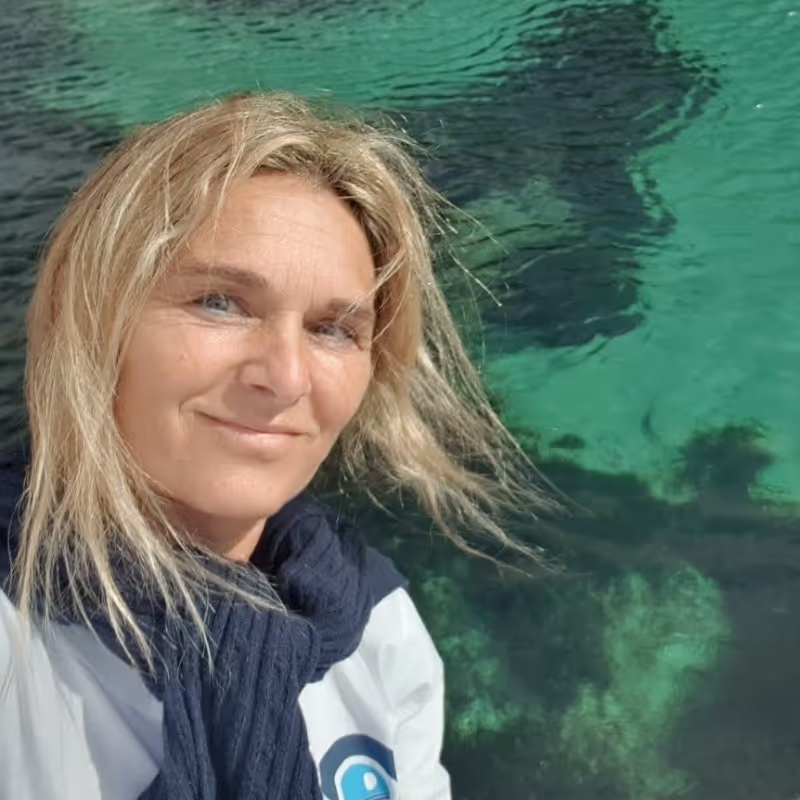


Salud Deudero Company, marine biologist, Research Professor and Director of the Balearic Oceanographic Centre (IEO-CSIC). A specialist in marine ecology and conservation of Mediterranean coastal ecosystems, her research focuses on assessing human impact on biodiversity, particularly plastic pollution. Her work integrates field studies, laboratory experimentation, and ecological modeling to understand the effects of microplastics on marine ecosystems and biodiversity.
She has led and participated in numerous national and international monitoring and impact mitigation projects, providing key scientific knowledge for the management and conservation of marine ecosystems. Her scientific output includes high-impact articles, technical reports, and contributions to marine management policies. An elected member of the Royal Academy of Sciences, she promotes knowledge transfer between science and society.
Her career combines basic and applied science, with a clear commitment to protecting the marine environment and advising managers and policymakers to ensure the sustainability of Mediterranean and global oceans.
She has led and participated in numerous national and international monitoring and impact mitigation projects, providing key scientific knowledge for the management and conservation of marine ecosystems. Her scientific output includes high-impact articles, technical reports, and contributions to marine management policies. An elected member of the Royal Academy of Sciences, she promotes knowledge transfer between science and society.
Her career combines basic and applied science, with a clear commitment to protecting the marine environment and advising managers and policymakers to ensure the sustainability of Mediterranean and global oceans.
AROUND THE WEB:
speaker
Valerie Pimentel
Legal Officer, OceanCare & International Maritime Law Lecturer
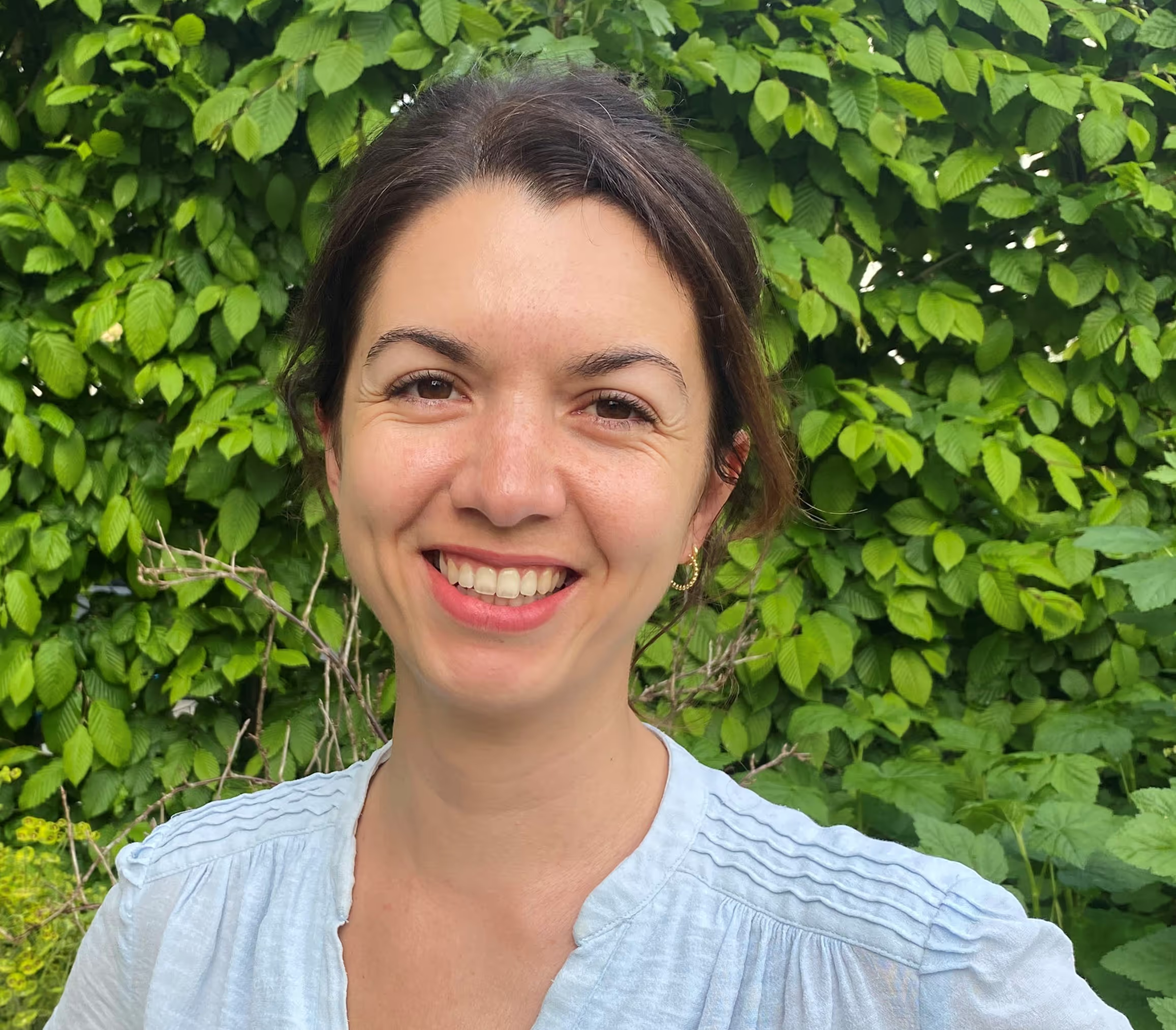


Valérie Pimentel is a Legal Officer at OceanCare, where she works on advancing legal frameworks at international, European, and national levels to better protect marine biodiversity in the face of growing ocean exploitation. Her work focuses in particular on the legal dimensions of underwater noise from maritime traffic and on addressing collisions between ships and cetaceans.
She holds a Master’s degree in Law from the University of Zurich and an LL.M. in Environmental Law from the Center for Environmental Law in Tarragona. Her professional background includes serving as a research assistant at the Swiss Embassy in Costa Rica and working in the Balearic Islands to strengthen the protection of marine protected areas and reduce single-use plastics in the tourism sector.
In addition to her role at OceanCare, she teaches International Maritime Law at the University of Applied Sciences and Arts Northwestern Switzerland, within the CAS Environmental Law in Enforcement programme.
She holds a Master’s degree in Law from the University of Zurich and an LL.M. in Environmental Law from the Center for Environmental Law in Tarragona. Her professional background includes serving as a research assistant at the Swiss Embassy in Costa Rica and working in the Balearic Islands to strengthen the protection of marine protected areas and reduce single-use plastics in the tourism sector.
In addition to her role at OceanCare, she teaches International Maritime Law at the University of Applied Sciences and Arts Northwestern Switzerland, within the CAS Environmental Law in Enforcement programme.
AROUND THE WEB:
speaker
Silvia García Higuera
Senior Technician in Terrestrial and Marine Biodiversity, Ministry for the Ecological Transition and the Demographic Challenge (MITECO)
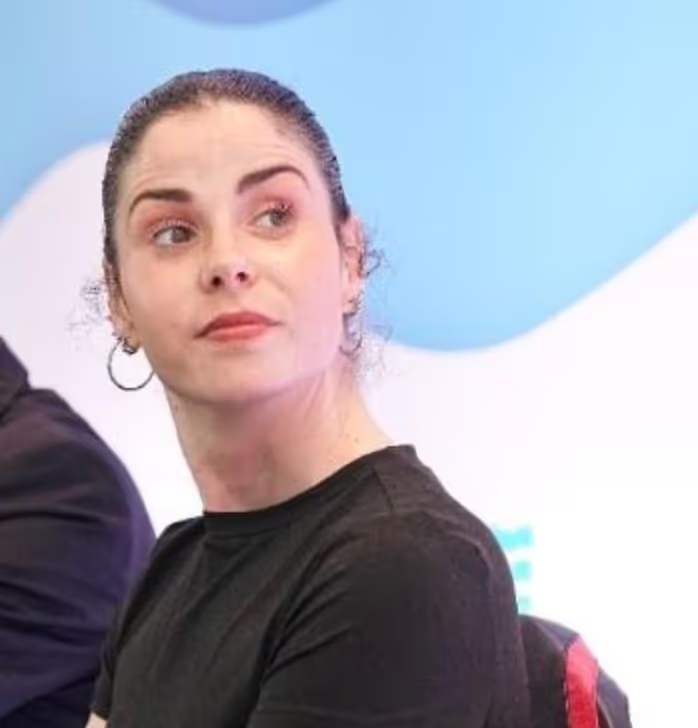


Silvia García Higuera is a Senior Technician at the Subdirectorate General of Terrestrial and Marine Biodiversity of the Ministry for the Ecological Transition and the Demographic Challenge (MITECO) and a civil servant in the Corps/Scale of Senior Faculty Technicians of Autonomous Organisms of the Ministry of Environment since 2024.
Her academic background includes a Bachelor's degree in Biology with a specialization in Environmental Biology from the Complutense University of Madrid, complemented by a Master's in Conservation Biology (UCM) and a Master's in Agro-environmental and Agro-food Sciences (UNED-UAM).
In her current role, Silvia specializes in marine invertebrate management and is responsible for the National Restoration Plan, in addition to processing sanctioning procedures in marine biodiversity matters. She serves as the Focal Point for the Protocol on Specially Protected Areas and Biological Diversity in the Mediterranean of the Barcelona Convention, and leads the development and processing of Conservation and Recovery Plans for marine species, directly contributing to the protection and restoration of Spanish marine ecosystems.
Her academic background includes a Bachelor's degree in Biology with a specialization in Environmental Biology from the Complutense University of Madrid, complemented by a Master's in Conservation Biology (UCM) and a Master's in Agro-environmental and Agro-food Sciences (UNED-UAM).
In her current role, Silvia specializes in marine invertebrate management and is responsible for the National Restoration Plan, in addition to processing sanctioning procedures in marine biodiversity matters. She serves as the Focal Point for the Protocol on Specially Protected Areas and Biological Diversity in the Mediterranean of the Barcelona Convention, and leads the development and processing of Conservation and Recovery Plans for marine species, directly contributing to the protection and restoration of Spanish marine ecosystems.
AROUND THE WEB:
speaker
John Geurtz
President of the CMAS Scientific Committee and elite diving instructor
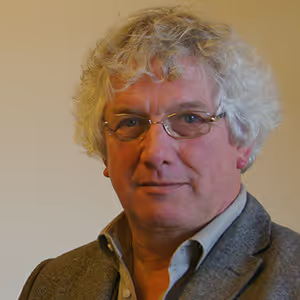


John Geurts has recently been elected as President of the Scientific Committee of the Confédération Mondiale des Activités Subaquatiques (CMAS). His appointment to the presidency of one of CMAS's three core committees represents recognition of his exceptional contribution to the world of scientific diving and his leadership in protecting underwater cultural and natural heritage.
In May 2025, John Geurts was officially certified as a CMAS 4* Instructor, the highest instructor distinction within the international CMAS system. This prestigious certification is reserved for a select group of diving instructors worldwide and reflects an exceptional level of experience, commitment and leadership within the underwater sport. Candidates for this high distinction must meet extremely rigorous criteria including being an active member of a CMAS-affiliated national federation, possessing at least ten years of experience as a CMAS 3* instructor, having demonstrated a significant contribution to the development of training programs and/or improvement of diving safety, and having performed leadership roles within the national federation or the CMAS International Technical Committee.
As President of the CMAS Scientific Committee, Geurts assumes the mission of enhancing the protection and promotion of underwater cultural and natural heritage. His role will be central in strengthening CMAS's contribution to marine conservation and scientific research. The Scientific Committee has as its main task to focus the attention of the global diving community on important issues related to the marine and freshwater environment, promoting the role of divers as front-line observers of environmental health, particularly in relation to invasive species, coastal ecosystems and biodiversity. His leadership will be fundamental for the continued development of world-class scientific standards and the promotion of underwater research in collaboration with academic institutions and conservation organizations globally.
In May 2025, John Geurts was officially certified as a CMAS 4* Instructor, the highest instructor distinction within the international CMAS system. This prestigious certification is reserved for a select group of diving instructors worldwide and reflects an exceptional level of experience, commitment and leadership within the underwater sport. Candidates for this high distinction must meet extremely rigorous criteria including being an active member of a CMAS-affiliated national federation, possessing at least ten years of experience as a CMAS 3* instructor, having demonstrated a significant contribution to the development of training programs and/or improvement of diving safety, and having performed leadership roles within the national federation or the CMAS International Technical Committee.
As President of the CMAS Scientific Committee, Geurts assumes the mission of enhancing the protection and promotion of underwater cultural and natural heritage. His role will be central in strengthening CMAS's contribution to marine conservation and scientific research. The Scientific Committee has as its main task to focus the attention of the global diving community on important issues related to the marine and freshwater environment, promoting the role of divers as front-line observers of environmental health, particularly in relation to invasive species, coastal ecosystems and biodiversity. His leadership will be fundamental for the continued development of world-class scientific standards and the promotion of underwater research in collaboration with academic institutions and conservation organizations globally.
AROUND THE WEB:
speaker
Juliette Jacquemont
Postdoctoral researcher specializing in conservation science, impact assessments, and applied ecology focused on informING effective management decisions towards ocean sustainability.
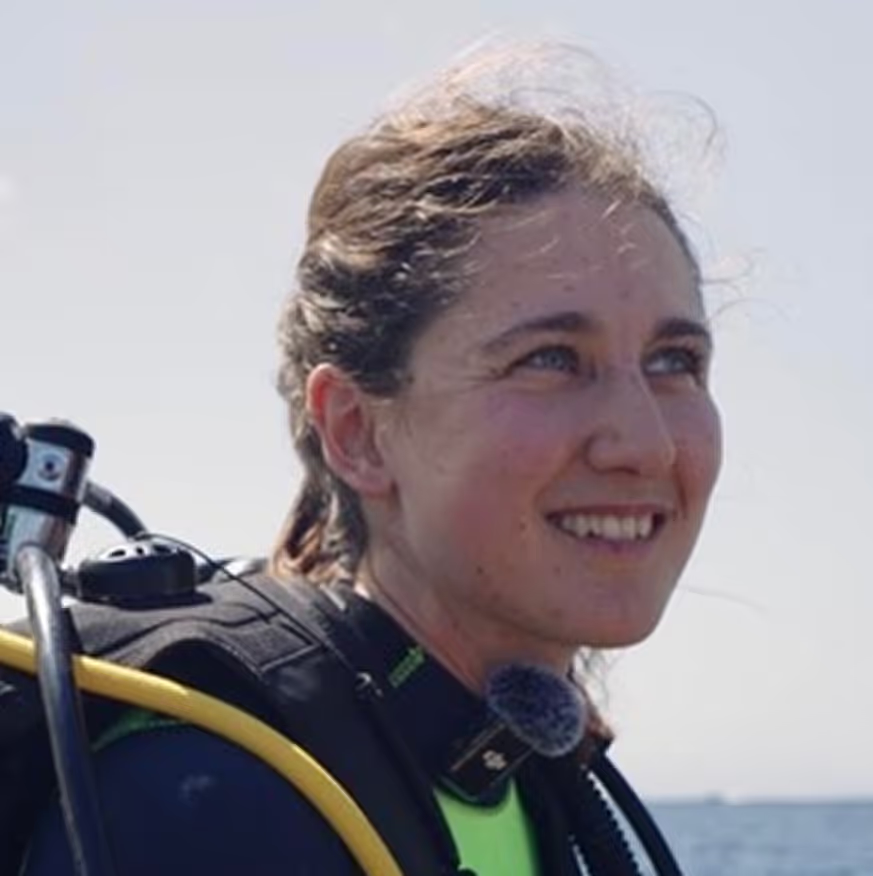


Juliette is a postdoc researcher in Ben Halpern’s lab at the National Center for Ecological Analysis and Synthesis (University of California, Santa Barbara). Through various fields of research including conservation science, impact assessments, and applied ecology, Juliette’s drive has been to inform effective management decisions towards ocean sustainability.
Juliette recently graduated from a Ph.D. from the School of Aquatic and Fishery Sciences (University of Washington, Seattle) and holds a Masters degree in Environmental Sciences from AgroParisTech (France). Juliette’s doctoral research focused on assessing the socio-ecological outcomes of conservation tools, identifying which design and management features drive conservation success, evaluating progress towards global conservation targets, and developing new frameworks to support evidence-based conservation actions that are effective, resource-efficient, and socially just.
In addition to conducting global scale analyses based on large, publicly available datasets, Juliette has dedicated months to conducting fieldwork in different ocean basins, with a focus on deep-reef ecology. In partnership with rebreather divers from Under The Pole or using manned-submersible diving, she has contributed to the characterization of deep-reef fish communities from the Caribbean and the Mediterranean Sea.
Juliette is an avid diver, climber and mountaineer, activities through which she has developed a deep connection and sense of value for the natural world.
Juliette recently graduated from a Ph.D. from the School of Aquatic and Fishery Sciences (University of Washington, Seattle) and holds a Masters degree in Environmental Sciences from AgroParisTech (France). Juliette’s doctoral research focused on assessing the socio-ecological outcomes of conservation tools, identifying which design and management features drive conservation success, evaluating progress towards global conservation targets, and developing new frameworks to support evidence-based conservation actions that are effective, resource-efficient, and socially just.
In addition to conducting global scale analyses based on large, publicly available datasets, Juliette has dedicated months to conducting fieldwork in different ocean basins, with a focus on deep-reef ecology. In partnership with rebreather divers from Under The Pole or using manned-submersible diving, she has contributed to the characterization of deep-reef fish communities from the Caribbean and the Mediterranean Sea.
Juliette is an avid diver, climber and mountaineer, activities through which she has developed a deep connection and sense of value for the natural world.
AROUND THE WEB:
speaker
Michelle Bender
Lawyer and leading expert in Ocean Rights and creator of the Rights of Nature movement in ocean policy



Michelle is the creator and leading expert in the movement towards "Ocean Rights," the application of Rights of Nature in the ocean policy seascape. She has provided her expertise to Rights of Nature laws and policies worldwide, including in the United States (Rhode Island and Washington), Panama (national law, sea turtle conservation law and marine reserve), the Philippines (national law), Aruba (constitutional amendment), global recognition of Whales as legal persons/entities, and within international law and institutions (IUCN Motion 056 (2025)).
She serves on the Advisory Board for the Global Alliance for the Rights of Nature, is a member of the IUCN's World Commission on Environmental Law, an expert of the UN Harmony with Nature initiative and Steering Committee Member for the UN Ocean Decade Coordination Office on Connecting People and the Ocean.
In 2018, she was named one of 15 Youth Ocean Leaders taking on the world internationally by the Sustainable Ocean Alliance. Michelle graduated Summa Cum Laude from Vermont Law School, where she earned a Master’s in Environmental Law and Policy and holds a B.S. in Biology with a Marine Emphasis from Western Washington University.
She serves on the Advisory Board for the Global Alliance for the Rights of Nature, is a member of the IUCN's World Commission on Environmental Law, an expert of the UN Harmony with Nature initiative and Steering Committee Member for the UN Ocean Decade Coordination Office on Connecting People and the Ocean.
In 2018, she was named one of 15 Youth Ocean Leaders taking on the world internationally by the Sustainable Ocean Alliance. Michelle graduated Summa Cum Laude from Vermont Law School, where she earned a Master’s in Environmental Law and Policy and holds a B.S. in Biology with a Marine Emphasis from Western Washington University.
AROUND THE WEB:
speaker
MAGDA
BANDERA
Journalist. Director of La Marea and Climática
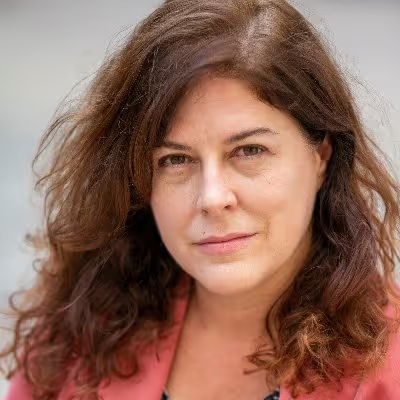


Journalist. Director of La Marea and Climática. She holds a degree in Journalism from UAB and a postgraduate qualification in Digital Journalism (UOC).
She has worked as a journalist at La Vanguardia and Público. She collaborates with various media outlets including Cadena Ser and Rac1.
Her work has been recognized by the Catalan Institute of Human Rights (2019). She has also received the Prensa Mujer Award (2017) and the Good Practices in Non-Sexist Communication Award from the Catalan Association of Women Journalists (2019), among others.
She has worked as a journalist at La Vanguardia and Público. She collaborates with various media outlets including Cadena Ser and Rac1.
Her work has been recognized by the Catalan Institute of Human Rights (2019). She has also received the Prensa Mujer Award (2017) and the Good Practices in Non-Sexist Communication Award from the Catalan Association of Women Journalists (2019), among others.
AROUND THE WEB:
speaker
Elena Ojea
Environmental economist specializing in climate change adaptation in marine systems and fisheries, senior researcher at the University of Vigo and IPCC lead author.



Elena Ojea holds an undergraduate degree in Environmental Sciences and a PhD in Economics, with solid interdisciplinary training that allows her to address complex problems from a comprehensive perspective. Her early academic training in Environmental Sciences provided her with a deep understanding of complex global problems affecting different systems worldwide, while her PhD in Economics gave her the analytical tools necessary to evaluate the socioeconomic dimensions of these challenges. Her experience as a postdoctoral researcher and research fellow at the Basque Centre for Climate Change (BC3) consolidated her expertise in climate change economics and ecosystem services.
She currently serves as Senior Researcher at CIM-University of Vigo, where she directs the Future Oceans Lab, a research group specialized in marine systems and climate change that she founded in 2016. Her academic career includes significant international experience as a visiting researcher at the Bren School for Environmental Science and Policy at the University of California, Santa Barbara (UCSB) since 2013, where she joined the sustainable fisheries group and worked with experts on sustainable fishery management solutions implemented globally. Since 2018, she has been supported by the Oportunius program of the Galician government, and leads the CLOCK project: Climate Adaptation to shifting stocks, funded by the European Research Council with an ERC Starting Grant.
Her professional trajectory has been recognized with the Banc Sabadell Marine Sustainability Award in 2023, highlighting her exceptional contribution to the field of marine sustainability. She has participated as Lead Author in the Oceans chapter of Working Group II of the IPCC Sixth Assessment Report (6AR), consolidating her position as an international reference in climate impact assessment in marine systems. She currently serves on the scientific committee of Blue Food Futures, reflecting her leadership in the analysis of marine food systems under climate change scenarios.
Her research focuses on climate change adaptation in marine social-ecological systems, with special emphasis on small-scale fisheries and vulnerability and resilience assessment of coastal communities. Among her most notable contributions is the development of conceptual frameworks to assess economic connectivity among fishing species as an indicator of adaptive capacity, and analysis of transformational versus incremental responses in sea-dependent livelihoods. She has supervised multiple doctoral theses with international mention and co-directs research on benthic resources under spatial management, including pioneering studies on the stalked barnacle (Pollicipes pollicipes) fishery in Galicia.
Her prolific scientific production, with more than 2,578 citations, includes publications in high-impact journals such as Nature, Ecological Economics and Communications Earth & Environment, establishing her as one of the most influential voices in marine economics and climate adaptation globally.
She currently serves as Senior Researcher at CIM-University of Vigo, where she directs the Future Oceans Lab, a research group specialized in marine systems and climate change that she founded in 2016. Her academic career includes significant international experience as a visiting researcher at the Bren School for Environmental Science and Policy at the University of California, Santa Barbara (UCSB) since 2013, where she joined the sustainable fisheries group and worked with experts on sustainable fishery management solutions implemented globally. Since 2018, she has been supported by the Oportunius program of the Galician government, and leads the CLOCK project: Climate Adaptation to shifting stocks, funded by the European Research Council with an ERC Starting Grant.
Her professional trajectory has been recognized with the Banc Sabadell Marine Sustainability Award in 2023, highlighting her exceptional contribution to the field of marine sustainability. She has participated as Lead Author in the Oceans chapter of Working Group II of the IPCC Sixth Assessment Report (6AR), consolidating her position as an international reference in climate impact assessment in marine systems. She currently serves on the scientific committee of Blue Food Futures, reflecting her leadership in the analysis of marine food systems under climate change scenarios.
Her research focuses on climate change adaptation in marine social-ecological systems, with special emphasis on small-scale fisheries and vulnerability and resilience assessment of coastal communities. Among her most notable contributions is the development of conceptual frameworks to assess economic connectivity among fishing species as an indicator of adaptive capacity, and analysis of transformational versus incremental responses in sea-dependent livelihoods. She has supervised multiple doctoral theses with international mention and co-directs research on benthic resources under spatial management, including pioneering studies on the stalked barnacle (Pollicipes pollicipes) fishery in Galicia.
Her prolific scientific production, with more than 2,578 citations, includes publications in high-impact journals such as Nature, Ecological Economics and Communications Earth & Environment, establishing her as one of the most influential voices in marine economics and climate adaptation globally.
AROUND THE WEB:
speaker
Michael Sealey
Marine biologist specializing in marine conservation, MPA protection and European fisheries policies.



Michael Sealey holds a Bachelor's degree in Biology from the University of La Laguna. His solid multidisciplinary academic background encompasses experience in diverse fields such as education, research, legislation, and marine conservation. During his final university years, he co-founded an NGO and began leading marine conservation initiatives, including collaboration with NGO coalitions working toward legislative changes in the European Union regarding fisheries.
He currently serves as Senior Policy Advisor at Oceana, where he works on habitat protection campaigns to establish a network of effective and well-managed marine protected areas in Spain, ensuring the preservation of fundamental marine ecosystems. His work focuses on the use of science, legislative advocacy, and underwater photography as primary tools for ocean protection and conservation, with particular interest in marine ecology and conservation focused on MPAs and cartilaginous fish.
His professional trajectory includes significant international experience, having traveled abroad to deliver science-oriented courses in Fiji and collaborated on various research and conservation projects. Upon returning to the Canary Islands, he worked as an environmental consultant, spent several years teaching biology, and participated in a collaborative project for angelshark research and conservation. His technical expertise encompasses conservation biology and marine protection policies, serving as an active advocate for the prohibition of bottom trawling in European marine protected areas.
He currently serves as Senior Policy Advisor at Oceana, where he works on habitat protection campaigns to establish a network of effective and well-managed marine protected areas in Spain, ensuring the preservation of fundamental marine ecosystems. His work focuses on the use of science, legislative advocacy, and underwater photography as primary tools for ocean protection and conservation, with particular interest in marine ecology and conservation focused on MPAs and cartilaginous fish.
His professional trajectory includes significant international experience, having traveled abroad to deliver science-oriented courses in Fiji and collaborated on various research and conservation projects. Upon returning to the Canary Islands, he worked as an environmental consultant, spent several years teaching biology, and participated in a collaborative project for angelshark research and conservation. His technical expertise encompasses conservation biology and marine protection policies, serving as an active advocate for the prohibition of bottom trawling in European marine protected areas.
AROUND THE WEB:
speaker
Maria gonzalez
Pioneer attorney in animal law in Spain and founder of the first legal firm specialized exclusively in animal legal protection.
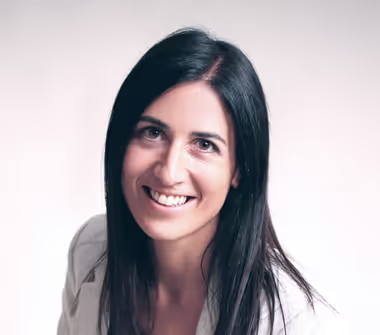


María González Lacabex holds a Law Degree and a Master's in Animal Law and Society from the Autonomous University of Barcelona, becoming one of the first specialists in this discipline in Spain. Her complementary academic training includes her participation as a researcher in projects of the UAB Animal Law group, where she collaborated in creating the first legal database in Spain that incorporates animal legislation and jurisprudence, contributing to the academic and practical development of this area of law.
In 2012, she founded Animalex, the first law firm in Spain dedicated exclusively to Animal Law, establishing a precedent in legal specialization for the protection of non-human animals. Based in Getxo (Bizkaia), her firm offers legal and consulting services directed toward individuals, associations, companies, public administrations, and other agents interested in this matter.
She is a member of the Board of Directors of INTERcids, an organization formed by recognized legal operators that constitutes a space for encounter, communication, and coordination for the legal defense of animals. She also belongs to the Animal Law Study Group of the Illustrious Bar Association of Bizkaia, from where she has contributed significantly to the analysis and development of animal legislation in Spain. Additionally, she is part of CoPPA (Coordination of Professionals for Abuse Prevention), where she specializes in the relationship between animal abuse and interpersonal violence.
She has published in the journal Derecho Animal (Forum of Animal Law Studies) belonging to the Universitat Autònoma de Barcelona, where she has analyzed everything from commentary on judicial sentences to legislative reforms and European directives. Among her most notable works are analyses on traditions versus animal welfare, commentaries on animal abuse in establishments, doping in animal trials, and critical evaluations of animal protection legislation. She has been an authoritative voice in media during the processes of reforming the Spanish Civil Code to recognize animals as sentient beings, as well as in the development of the Animal Protection and Rights Law. Her work has contributed decisively to making visible the need to recognize the sentient condition of animals in the Spanish legal system, establishing her as a national reference in the practical application of animal law and the legal defense of non-human animal rights.
In 2012, she founded Animalex, the first law firm in Spain dedicated exclusively to Animal Law, establishing a precedent in legal specialization for the protection of non-human animals. Based in Getxo (Bizkaia), her firm offers legal and consulting services directed toward individuals, associations, companies, public administrations, and other agents interested in this matter.
She is a member of the Board of Directors of INTERcids, an organization formed by recognized legal operators that constitutes a space for encounter, communication, and coordination for the legal defense of animals. She also belongs to the Animal Law Study Group of the Illustrious Bar Association of Bizkaia, from where she has contributed significantly to the analysis and development of animal legislation in Spain. Additionally, she is part of CoPPA (Coordination of Professionals for Abuse Prevention), where she specializes in the relationship between animal abuse and interpersonal violence.
She has published in the journal Derecho Animal (Forum of Animal Law Studies) belonging to the Universitat Autònoma de Barcelona, where she has analyzed everything from commentary on judicial sentences to legislative reforms and European directives. Among her most notable works are analyses on traditions versus animal welfare, commentaries on animal abuse in establishments, doping in animal trials, and critical evaluations of animal protection legislation. She has been an authoritative voice in media during the processes of reforming the Spanish Civil Code to recognize animals as sentient beings, as well as in the development of the Animal Protection and Rights Law. Her work has contributed decisively to making visible the need to recognize the sentient condition of animals in the Spanish legal system, establishing her as a national reference in the practical application of animal law and the legal defense of non-human animal rights.
AROUND THE WEB:
speaker
Giulia Malerbi
Head of Global Policy at Aquatic Life Institute
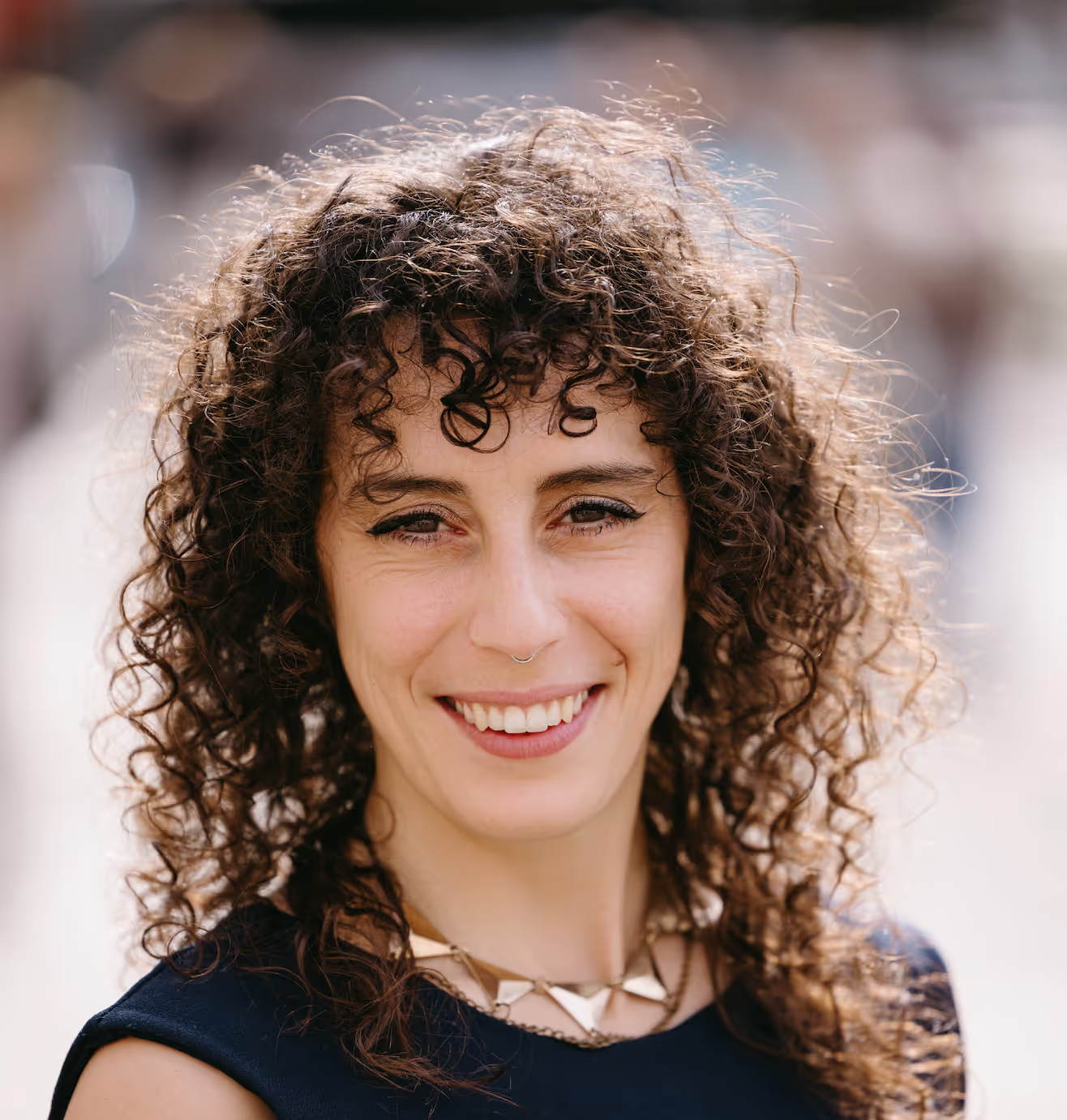


Giulia Malerbi is Head of Global Policy at Aquatic Life Institute, where she leads international advocacy to advance the welfare of aquatic animals. In this role, she represents the organization in global processes as a spokesperson and negotiator, while also supporting allied organizations in bringing aquatic animal protection into policy and practice worldwide.
Giulia holds a Bachelor’s degree in Animal Breeding Techniques from the University of Pisa, Italy; a Master of Science in Animal Welfare Science, Ethics and Law from the University of Glasgow, Scotland; and a Master of Studies in Animal Law from Lewis & Clark Law School, United States.
Her work focuses on demonstrating how animal welfare can act as a lever for stronger ocean restoration, more resilient food systems, and more just human–ocean relationships.
Giulia holds a Bachelor’s degree in Animal Breeding Techniques from the University of Pisa, Italy; a Master of Science in Animal Welfare Science, Ethics and Law from the University of Glasgow, Scotland; and a Master of Studies in Animal Law from Lewis & Clark Law School, United States.
Her work focuses on demonstrating how animal welfare can act as a lever for stronger ocean restoration, more resilient food systems, and more just human–ocean relationships.
AROUND THE WEB:
speaker
Nils Courcy
Senior lawyer at ClientEarth specializing in fisheries compliance and marine environmental litigation.



Nils worked for eight years in the legal service and the fisheries control unit of DG MARE (European Commission), where he developed a solid expertise on fisheries compliance. He participated in the process of revising the EU fisheries control regulation (evaluation, public consultation and drafting) and audited the fisheries control system of several Member States and third countries.
Since then, he has been putting his expertise at the service of environmental NGOs such as WWF EPO and The Pew Charitable Trust. He joined ClientEarth's ocean team in Brussels, in 2019, as a lawyer.
He has been involved in initiating several legal proceedings against EU Member States (the Netherlands, France, Spain, etc.) for failures in their control systems or in the implementation of rules relating to marine protected areas.
Since then, he has been putting his expertise at the service of environmental NGOs such as WWF EPO and The Pew Charitable Trust. He joined ClientEarth's ocean team in Brussels, in 2019, as a lawyer.
He has been involved in initiating several legal proceedings against EU Member States (the Netherlands, France, Spain, etc.) for failures in their control systems or in the implementation of rules relating to marine protected areas.
AROUND THE WEB:
speaker
Fabiola Leyton
Moral philosopher and bioethicist specialized in animal ethics and non-human animal rights.
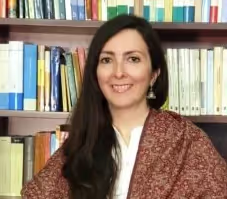


Dr. Fabiola Leyton Donoso holds a PhD in Philosophy from the University of Barcelona. Her academic background includes a Bachelor's degree in Social Work, a Master's in Philosophy with specialization in Axiology and Political Philosophy, and a Master's in Bioethics and Law.
Her research focuses on integrating non-human animals into the framework of global bioethics, challenging traditional boundaries of anthropocentrism in moral consideration. Her most notable research lines include critical analysis of speciesism in contemporary bioethics, animal experimentation from an ethical perspective, industrial livestock farming and its moral implications, and the development of theoretical frameworks for including animal interests in bioethical decision-making. Her interdisciplinary approach combines moral philosophy, applied bioethics, and environmental ethics to scientifically argue for the definitive incorporation of animals within the sphere of moral consideration.
Dr. Leyton is the author of the book "Animals in Bioethics. Tension at the Frontiers of Anthropocentrism," a work that constitutes a fundamental contribution to the debate on including non-human animals in global bioethics. With over 325 academic citations, she has published numerous articles on animal ethics, animal experimentation, and bioethical research in specialized journals. Her academic work is characterized by combining theoretical rigor with practical proposals for transforming human-animal relationships in scientific, technological, and social contexts.
She currently serves as Associate Professor at the University of Barcelona, where she is also a member of the Bioethics and Law Observatory and the Consolidated Research Group "Bioethics, Law and Society" of the Generalitat de Catalunya. Additionally, she serves as Editorial Coordinator of the Journal of Bioethics and Law at the University of Barcelona and professor in the Master's program in Bioethics and Law.
Her commitment to outreach and academic activism has led her to actively participate in national and international initiatives promoting animal rights from an anti-speciesist perspective, contributing to the development of animal ethics as a rigorous and socially relevant academic field.
Her research focuses on integrating non-human animals into the framework of global bioethics, challenging traditional boundaries of anthropocentrism in moral consideration. Her most notable research lines include critical analysis of speciesism in contemporary bioethics, animal experimentation from an ethical perspective, industrial livestock farming and its moral implications, and the development of theoretical frameworks for including animal interests in bioethical decision-making. Her interdisciplinary approach combines moral philosophy, applied bioethics, and environmental ethics to scientifically argue for the definitive incorporation of animals within the sphere of moral consideration.
Dr. Leyton is the author of the book "Animals in Bioethics. Tension at the Frontiers of Anthropocentrism," a work that constitutes a fundamental contribution to the debate on including non-human animals in global bioethics. With over 325 academic citations, she has published numerous articles on animal ethics, animal experimentation, and bioethical research in specialized journals. Her academic work is characterized by combining theoretical rigor with practical proposals for transforming human-animal relationships in scientific, technological, and social contexts.
She currently serves as Associate Professor at the University of Barcelona, where she is also a member of the Bioethics and Law Observatory and the Consolidated Research Group "Bioethics, Law and Society" of the Generalitat de Catalunya. Additionally, she serves as Editorial Coordinator of the Journal of Bioethics and Law at the University of Barcelona and professor in the Master's program in Bioethics and Law.
Her commitment to outreach and academic activism has led her to actively participate in national and international initiatives promoting animal rights from an anti-speciesist perspective, contributing to the development of animal ethics as a rigorous and socially relevant academic field.
AROUND THE WEB:
speaker
Francesco Maletto
Environmental law attorney specializing in marine habitats and biodiversity protection, with a focus on European law application for conservation.



Francesco Maletto joined ClientEarth in April 2021 as a lawyer specializing in marine habitats within the biodiversity program, with a particular focus on the Mediterranean region.
He holds a doctorate in law from Maastricht University (2024), with research focused on the application of the prevention principle to land-based marine pollution. He has academic experience and is the author of publications in the field of environmental law.
He currently works at ClientEarth's Madrid office, where he deals with marine conservation issues. His work focuses on using law as a tool to achieve effective protection of marine protected areas and, in general, marine fauna and habitats in European waters. Among other tasks, he develops strategic litigation to defend marine, freshwater and terrestrial species and habitats, with special attention to Mediterranean countries of the European Union.
Previously, he worked as an environmental lawyer at one of Italy's leading law firms, providing advice on environmental impact and emissions from industrial facilities. This experience gave him a broad perspective on the interaction between industrial activity and environmental protection, which he later applied to his work in the field of marine law.
He has led highly complex legal proceedings, especially in litigation against public administrations for breaches of conservation obligations. Among his most notable cases are the successful opposition to the "Teodorico" gas project in the Gulf of Venice, which threatened protected habitats; the Lake Vico case, in which the Italian Council of State ordered the reversal of damage caused by intensive agriculture in protected areas; and various legal actions at the European level to combat bottom trawling in marine protected areas, ensuring effective compliance with conservation regulations.
He holds a doctorate in law from Maastricht University (2024), with research focused on the application of the prevention principle to land-based marine pollution. He has academic experience and is the author of publications in the field of environmental law.
He currently works at ClientEarth's Madrid office, where he deals with marine conservation issues. His work focuses on using law as a tool to achieve effective protection of marine protected areas and, in general, marine fauna and habitats in European waters. Among other tasks, he develops strategic litigation to defend marine, freshwater and terrestrial species and habitats, with special attention to Mediterranean countries of the European Union.
Previously, he worked as an environmental lawyer at one of Italy's leading law firms, providing advice on environmental impact and emissions from industrial facilities. This experience gave him a broad perspective on the interaction between industrial activity and environmental protection, which he later applied to his work in the field of marine law.
He has led highly complex legal proceedings, especially in litigation against public administrations for breaches of conservation obligations. Among his most notable cases are the successful opposition to the "Teodorico" gas project in the Gulf of Venice, which threatened protected habitats; the Lake Vico case, in which the Italian Council of State ordered the reversal of damage caused by intensive agriculture in protected areas; and various legal actions at the European level to combat bottom trawling in marine protected areas, ensuring effective compliance with conservation regulations.
AROUND THE WEB:
speaker
Mara Zamora
Executive Director of Rewilding Spain



Lawyer by training with a strong vocation for alliance management and international projects, particularly in educational, social, and environmental spheres.
She has developed a solid trajectory in the third sector, with over 15 years of experience in foundations with educational, social, and environmental impact, both in Spain and Latin America.
Founder and General Director of the Spanish Rewilding Foundation - Rewilding Spain, whose main purpose is to promote the recovery of nature and wildlife in Spain, as well as nature and landscape conservation, based on natural processes and for the benefit of society.
She has developed a solid trajectory in the third sector, with over 15 years of experience in foundations with educational, social, and environmental impact, both in Spain and Latin America.
Founder and General Director of the Spanish Rewilding Foundation - Rewilding Spain, whose main purpose is to promote the recovery of nature and wildlife in Spain, as well as nature and landscape conservation, based on natural processes and for the benefit of society.
AROUND THE WEB:
speaker
Cristian MOYANO
Philosopher and researcher in environmental ethics, rewilding and ecological justice.



Dr. Cristian Moyano Fernández holds a Graduate and Master's degree in Philosophy, a PhD in Environmental Sciences and Technology from the Autonomous University of Barcelona and ICTA, and serves as a postdoctoral researcher at the Institute of Philosophy of the Spanish National Research Council (CSIC).
His academic trajectory is characterized by substantial scientific production, including the publication of indexed articles, specialized monographs on Rewilding Ethics, and active participation in international conferences, complemented by research stays at prestigious institutions such as University College London.
His research focuses on exploring the human relationship with wild nature in the Anthropocene, with particular emphasis on rewilding processes, environmental ethics, and ecological justice. Among his most notable contributions is the coordination of the ERA-CERES project on "Rewilding Ethics in the Anthropocene," funded by the BBVA Foundation, and the publication of the first book on rewilding ethics in Spanish with Plaza y Valdés publishing house in 2022. His areas of specialization encompass conservation biology ethics, bioethics, environmental health, and the ethical analysis of new disruptive technologies.
From a theoretical perspective, Dr. Moyano advocates for ethical frameworks grounded in the capabilities approach and environmental virtue ethics, promoting the recognition of synergistic flourishing in multispecies communities. His work is characterized by the defense of non-anthropocentric morality that emphasizes human humility and care toward other species, seeking to reconcile cosmopolitanism with local and community-based planning and decision-making.
Beyond the academic sphere, Dr. Moyano coherently integrates his intellectual commitment with activism in ecological and animal rights causes, having participated in organizations such as the Transition Towns Movement and ànimaL: som ànima animal. This combination of academic rigor and social engagement reflects his integral vision of philosophy applied to contemporary ecosocial challenges.
His academic trajectory is characterized by substantial scientific production, including the publication of indexed articles, specialized monographs on Rewilding Ethics, and active participation in international conferences, complemented by research stays at prestigious institutions such as University College London.
His research focuses on exploring the human relationship with wild nature in the Anthropocene, with particular emphasis on rewilding processes, environmental ethics, and ecological justice. Among his most notable contributions is the coordination of the ERA-CERES project on "Rewilding Ethics in the Anthropocene," funded by the BBVA Foundation, and the publication of the first book on rewilding ethics in Spanish with Plaza y Valdés publishing house in 2022. His areas of specialization encompass conservation biology ethics, bioethics, environmental health, and the ethical analysis of new disruptive technologies.
From a theoretical perspective, Dr. Moyano advocates for ethical frameworks grounded in the capabilities approach and environmental virtue ethics, promoting the recognition of synergistic flourishing in multispecies communities. His work is characterized by the defense of non-anthropocentric morality that emphasizes human humility and care toward other species, seeking to reconcile cosmopolitanism with local and community-based planning and decision-making.
Beyond the academic sphere, Dr. Moyano coherently integrates his intellectual commitment with activism in ecological and animal rights causes, having participated in organizations such as the Transition Towns Movement and ànimaL: som ànima animal. This combination of academic rigor and social engagement reflects his integral vision of philosophy applied to contemporary ecosocial challenges.
AROUND THE WEB:
speaker
María del Carmen García
Marine biologist and conservationist, director of Puerto Morelos Reef National Park and specialist in protected area management.



M.Sc. María del Carmen García Rivas holds a degree in Biology from the National Autonomous University of Mexico (UNAM) and a Master's in Science from the same institution, in addition to a PhD in Sciences in Ecology and Sustainable Development with orientation in Biodiversity Conservation from ECOSUR Chetumal Unit (2017). Her academic background is complemented by her experience as one of Mexico's first professional diving instructors and pioneer in crewing research vessels in Latin America. Her doctoral thesis "Life strategies and interspecific relationships of lionfish in the Mexican Caribbean" reflects her specialization in marine invasive species and their impact on Caribbean ecosystems.
Her work focuses on comprehensive management of marine protected areas, with particular emphasis on conservation of coral reefs, mangroves, and coastal ecosystems of the Mexican Caribbean. Her most notable research lines include control of invasive species such as lionfish (Pterois volitans), coral reef restoration, sargassum impact management, and development of innovative strategies for marine biodiversity protection. Her interdisciplinary approach combines scientific research, community management, and public policy to address the complex challenges facing marine ecosystems of the Mesoamerican Reef System, the world's second-largest barrier reef.
With 25 years of experience in protected area management, García Rivas has directed multiple national parks in Quintana Roo, including Xcalak Reef National Park, Banco Chinchorro Biosphere Reserve, Isla Contoy National Park, and currently Puerto Morelos Reef National Park. Her technical leadership has positioned her as a national reference in marine conservation, being author of various scientific articles on population genetics of invasive species, lionfish control strategies, and comprehensive coral reef management. During her tenure she has combated illegal fishing groups, implemented training programs for fishing cooperatives, and developed innovative coral restoration protocols.
In 2023 she received the prestigious Kenton R. Miller Award for Innovation in National Parks and Protected Area Sustainability, granted by the World Commission on Protected Areas (WCPA), a recognition that distinguishes her as a role model for women conservationists internationally. Her leadership in the Hurricane Insurance Project at Puerto Morelos National Park and her pioneering role as one of the first women to work with fishermen and the Mexican navy reflect her commitment to innovation in environmental management. Her current work focuses on addressing climate change impacts on coral reefs, developing mitigation strategies that include both clonal and sexual coral reproduction techniques, and promoting community participation in marine conservation through educational and environmental awareness programs.
Her work focuses on comprehensive management of marine protected areas, with particular emphasis on conservation of coral reefs, mangroves, and coastal ecosystems of the Mexican Caribbean. Her most notable research lines include control of invasive species such as lionfish (Pterois volitans), coral reef restoration, sargassum impact management, and development of innovative strategies for marine biodiversity protection. Her interdisciplinary approach combines scientific research, community management, and public policy to address the complex challenges facing marine ecosystems of the Mesoamerican Reef System, the world's second-largest barrier reef.
With 25 years of experience in protected area management, García Rivas has directed multiple national parks in Quintana Roo, including Xcalak Reef National Park, Banco Chinchorro Biosphere Reserve, Isla Contoy National Park, and currently Puerto Morelos Reef National Park. Her technical leadership has positioned her as a national reference in marine conservation, being author of various scientific articles on population genetics of invasive species, lionfish control strategies, and comprehensive coral reef management. During her tenure she has combated illegal fishing groups, implemented training programs for fishing cooperatives, and developed innovative coral restoration protocols.
In 2023 she received the prestigious Kenton R. Miller Award for Innovation in National Parks and Protected Area Sustainability, granted by the World Commission on Protected Areas (WCPA), a recognition that distinguishes her as a role model for women conservationists internationally. Her leadership in the Hurricane Insurance Project at Puerto Morelos National Park and her pioneering role as one of the first women to work with fishermen and the Mexican navy reflect her commitment to innovation in environmental management. Her current work focuses on addressing climate change impacts on coral reefs, developing mitigation strategies that include both clonal and sexual coral reproduction techniques, and promoting community participation in marine conservation through educational and environmental awareness programs.
AROUND THE WEB:
speaker
Isabel Leal Maldonado
Senior advisor and communications lead specialising in ocean governance and biodiversity policy, with 25+ years of international experience in strategic communication and policy for environmental protection.
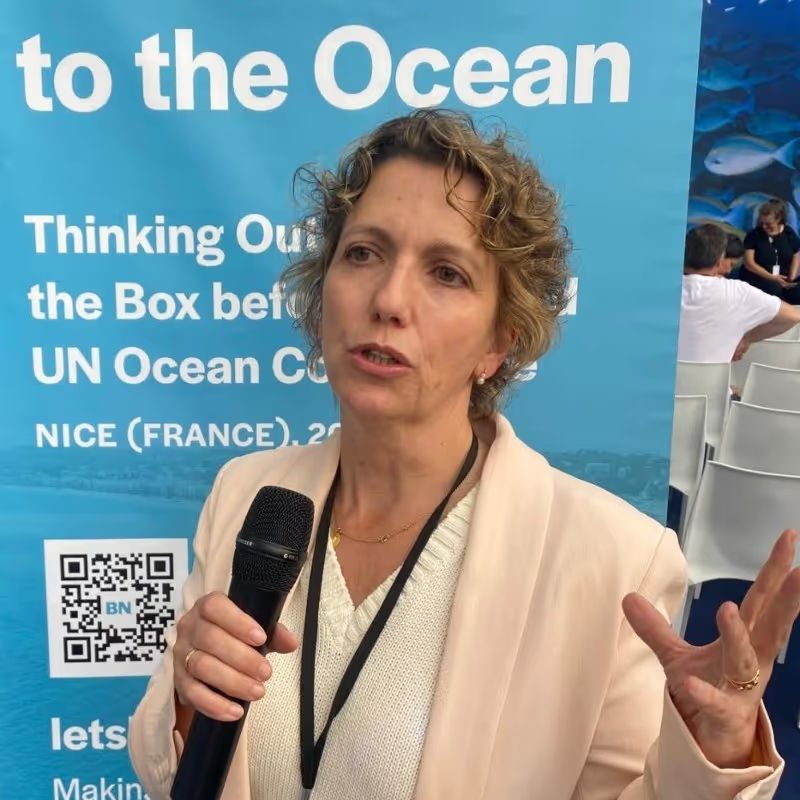


Isabel Leal Maldonado is a senior advisor in strategic communication and policy advocacy. Trained as a journalist, she has more than 25 years of international experience dedicated to environmental justice, biodiversity protection, and ocean governance.
Throughout her career, she has worked at the intersection of communication and policy, leading high-impact initiatives for environmental protection, ocean governance campaigns, and the fight against environmental crime, ranging from wildlife trafficking to crimes in the marine environment. She has designed and consolidated communication and policy strategies, giving visibility and relevance to initiatives and helping position them on the international agenda. She has also built strategic partnerships, strengthened coalitions, and connected decision-makers, judicial actors, and international organizations, supporting global institutions in the defense of biodiversity.
Between 2023 and 2025, she coordinated the Let’s Be Nice to the Ocean movement, launched by The Varda Group in November 2023, which in just 18 months brought together more than 110 organizations around the Protection Principle. The campaign culminated at the UN Ocean Conference in Nice (June 2025) and gave rise to an international and multidisciplinary task force, mandated to transform the Protection Principle into effective legal norms and make ocean protection the norm rather than the exception. The Protection Principle has already gained recognition across diplomatic, institutional, and civil society circles, and continues to build momentum with expressions of interest from many fronts.
She is currently working on consolidating this paradigm shift, promoting a vision in which protection prevails over the exploitation of the ocean, and advancing the integration of the Principle into international policies and legal frameworks. She also collaborates with leading international environmental law organizations, supporting efforts to strengthen law enforcement, combat environmental crime, and develop innovative legal solutions to address the global ecological crisis.
Her career includes roles in Greenpeace International’s International Press and Editorial Department in the 1990s, and later at Médecins Sans Frontières as Communications Officer in Spain. More recently, she was Director of Communications at the Wildlife Justice Commission in The Hague (2017–2021), where she designed and consolidated the organization’s global communication strategy.
Since then, she has worked as an independent communication and policy advisor, including with the United Nations Development Programme (UNDP) in 2023–2024, and since 2023 she has collaborated with ClientEarth as an advisor on biodiversity policy and communication. She is also a member of the Advisory Board of Go Insight, an entity specialized in criminal intelligence analysis to combat wildlife trafficking, and has actively collaborated with The Varda Group on projects related to ocean governance, the protection of the Antarctic, and the negotiations for a global plastics treaty.
Throughout her career, she has worked at the intersection of communication and policy, leading high-impact initiatives for environmental protection, ocean governance campaigns, and the fight against environmental crime, ranging from wildlife trafficking to crimes in the marine environment. She has designed and consolidated communication and policy strategies, giving visibility and relevance to initiatives and helping position them on the international agenda. She has also built strategic partnerships, strengthened coalitions, and connected decision-makers, judicial actors, and international organizations, supporting global institutions in the defense of biodiversity.
Between 2023 and 2025, she coordinated the Let’s Be Nice to the Ocean movement, launched by The Varda Group in November 2023, which in just 18 months brought together more than 110 organizations around the Protection Principle. The campaign culminated at the UN Ocean Conference in Nice (June 2025) and gave rise to an international and multidisciplinary task force, mandated to transform the Protection Principle into effective legal norms and make ocean protection the norm rather than the exception. The Protection Principle has already gained recognition across diplomatic, institutional, and civil society circles, and continues to build momentum with expressions of interest from many fronts.
She is currently working on consolidating this paradigm shift, promoting a vision in which protection prevails over the exploitation of the ocean, and advancing the integration of the Principle into international policies and legal frameworks. She also collaborates with leading international environmental law organizations, supporting efforts to strengthen law enforcement, combat environmental crime, and develop innovative legal solutions to address the global ecological crisis.
Her career includes roles in Greenpeace International’s International Press and Editorial Department in the 1990s, and later at Médecins Sans Frontières as Communications Officer in Spain. More recently, she was Director of Communications at the Wildlife Justice Commission in The Hague (2017–2021), where she designed and consolidated the organization’s global communication strategy.
Since then, she has worked as an independent communication and policy advisor, including with the United Nations Development Programme (UNDP) in 2023–2024, and since 2023 she has collaborated with ClientEarth as an advisor on biodiversity policy and communication. She is also a member of the Advisory Board of Go Insight, an entity specialized in criminal intelligence analysis to combat wildlife trafficking, and has actively collaborated with The Varda Group on projects related to ocean governance, the protection of the Antarctic, and the negotiations for a global plastics treaty.
AROUND THE WEB:
speaker
Aurore Morin
Marine Conservation Campaign Officer for the International Fund for Animal Welfare (IFAW)
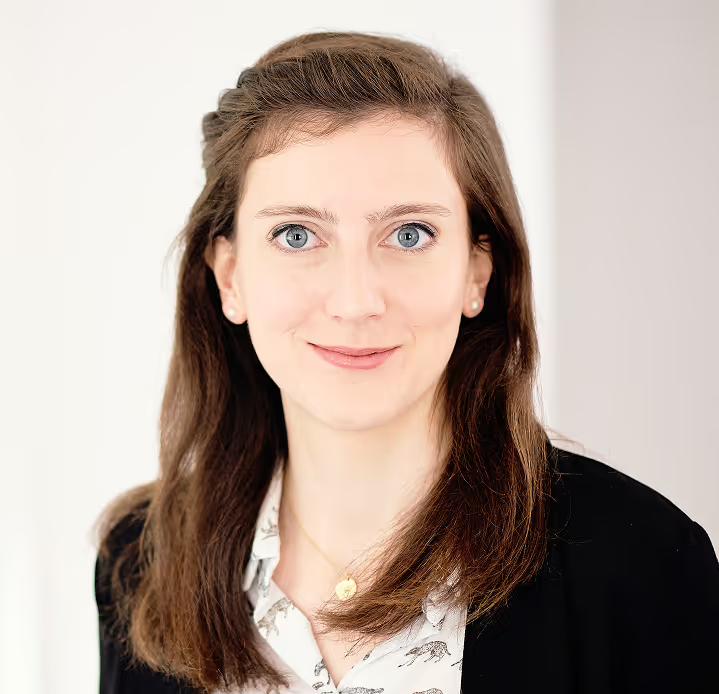


Aurore is working on reducing underwater ocean noise from shipping and the risk of ship strikes to protect marine mammals, by collaborating with the shipping industry, developing strategic relationships with policy makers and raising awareness about these issues with the general public. She is currently leading IFAW’s Blue Speeds campaign, advocating for reduced ship speeds in European waters to reduce the environmental impacts of the shipping sector.
AROUND THE WEB:
speaker
Juliette Aminian Biquet
Interdisciplinary marine policy researcher
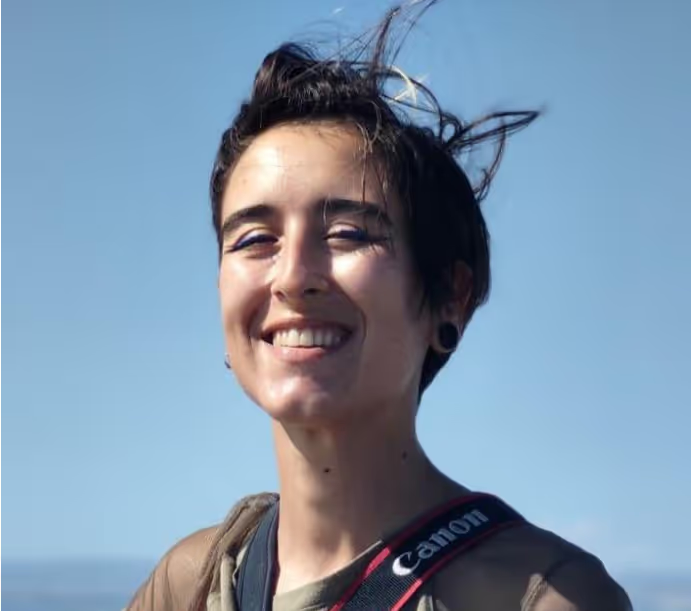


Juliette is a Interdisciplinary marine policy researcher, working across geography, legal and political sciences, and initially trained as an ecology researcher. Juliette has gained diverse experience in human and ecological research, investigating nature experiences, wetlands and fisheries management, wild populations evolutions to climate changes, conducting social investigations, quantitative analyses, or fieldwork.
She is conducting her PhD research, investigating the uses of marine protected areas by EU Member States to regulate human activities. She is currently investigating the implementation of the strict protection target in three EU Member States and one French region, collaborating with researchers and managers and interviewing involved and concerned stakeholders on the decision-making processes, their strategies to influence decisions, and potential transformation paths.
She has been a Young Ambassador for the European Marine Board, a think tank linking marine research with policy making, and managing its Early Career network. She is currently a volunteer at the Global Youth Biodiversity Framework, the official youth group at the negotiations of the Global Biodiversity Framework, particularly involved in improving youth participation in the French biodiversity strategy.
She is conducting her PhD research, investigating the uses of marine protected areas by EU Member States to regulate human activities. She is currently investigating the implementation of the strict protection target in three EU Member States and one French region, collaborating with researchers and managers and interviewing involved and concerned stakeholders on the decision-making processes, their strategies to influence decisions, and potential transformation paths.
She has been a Young Ambassador for the European Marine Board, a think tank linking marine research with policy making, and managing its Early Career network. She is currently a volunteer at the Global Youth Biodiversity Framework, the official youth group at the negotiations of the Global Biodiversity Framework, particularly involved in improving youth participation in the French biodiversity strategy.
AROUND THE WEB:
speaker
Olivia Mandle
Young environmental activist and animal rights advocate.



Olivia Mandle is a young activist from Barcelona, author and international speaker who fights for ocean protection and the end of cetacean captivity. At age 12, she created the Jelly Cleaner, a homemade and sustainable tool for collecting microplastics from the sea, distributed in coastal communities and educational centers.
In 2020, she launched her first campaign on Change.org to transfer the dolphins from Barcelona Zoo to a marine sanctuary, achieving more than 56,000 signatures. After discovering that Spain is Europe's largest dolphin prison, she initiated the #NoEsPaísParaDelfines campaign, which demands the scheduled closure of dolphinariums and has garnered more than 159,000 signatures, presented to the Congress of Deputies, the Senate, and the European Parliament.
Author of the book "Sí es Cosa Tuya" (Penguin Random House, 2023), number 1 on Amazon.es in its category, Olivia combines scientific outreach, practical proposals, and a message of hope. She is the presenter of the program "Kanviem?" on Catalan television (TV3) and has participated in the documentary "Sense Timó: per un mar lliure de plàstics."
She has been a speaker at more than 70 conferences and 2 TEDx talks, and has participated in forums such as the Our Ocean Conference, the European Parliament, the UN, and business congresses. Among her recognitions are the Rising Blue Voice Award 2025, the title of European Climate Pact Ambassador, Ambassador of the Paul Watson International Foundation, B Corporation Ambassador, Marine Ambassador of WILD Foundation, and Storyteller for National Geographic Spain. She has been named Food Hero by FAO and one of the most influential women in Spain by El Mundo.
She is currently studying Marine Biology and Oceanography at the University of Plymouth (United Kingdom), with the goal of becoming a scientist and continuing to lead actions for ocean conservation. Through her work, Olivia represents a generation that doesn't wait to change the world: she acts, creates, denounces, and educates, sowing awareness with passion, science, and hope.
In 2020, she launched her first campaign on Change.org to transfer the dolphins from Barcelona Zoo to a marine sanctuary, achieving more than 56,000 signatures. After discovering that Spain is Europe's largest dolphin prison, she initiated the #NoEsPaísParaDelfines campaign, which demands the scheduled closure of dolphinariums and has garnered more than 159,000 signatures, presented to the Congress of Deputies, the Senate, and the European Parliament.
Author of the book "Sí es Cosa Tuya" (Penguin Random House, 2023), number 1 on Amazon.es in its category, Olivia combines scientific outreach, practical proposals, and a message of hope. She is the presenter of the program "Kanviem?" on Catalan television (TV3) and has participated in the documentary "Sense Timó: per un mar lliure de plàstics."
She has been a speaker at more than 70 conferences and 2 TEDx talks, and has participated in forums such as the Our Ocean Conference, the European Parliament, the UN, and business congresses. Among her recognitions are the Rising Blue Voice Award 2025, the title of European Climate Pact Ambassador, Ambassador of the Paul Watson International Foundation, B Corporation Ambassador, Marine Ambassador of WILD Foundation, and Storyteller for National Geographic Spain. She has been named Food Hero by FAO and one of the most influential women in Spain by El Mundo.
She is currently studying Marine Biology and Oceanography at the University of Plymouth (United Kingdom), with the goal of becoming a scientist and continuing to lead actions for ocean conservation. Through her work, Olivia represents a generation that doesn't wait to change the world: she acts, creates, denounces, and educates, sowing awareness with passion, science, and hope.
AROUND THE WEB:
speaker
Laura Secorun
Former foreign correspondent, founder of ocean communication agency Meridian.
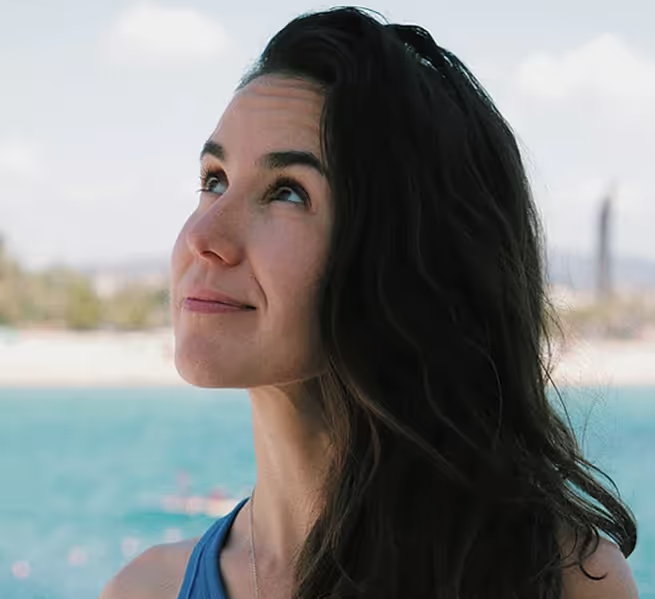


Laura Secorun an environmental communication strategist and founder of Meridian, a communication agency dedicated exclusively to ocean conservation. Secorun spent the first decade of her career working as a foreign correspondent in East Africa and the Middle East for outlets like The New York Times, The Guardian and Newsweek.
After witnessing the humanitarian consequences of climate inaction, she realised the urgent need for more ambitious and effective environmental storytelling. Now she helps ocean advocates around the globe - from scientific researchers to non-profit leaders - craft communication campaigns that drive positive change for our seas.
After witnessing the humanitarian consequences of climate inaction, she realised the urgent need for more ambitious and effective environmental storytelling. Now she helps ocean advocates around the globe - from scientific researchers to non-profit leaders - craft communication campaigns that drive positive change for our seas.
AROUND THE WEB:
speaker
Jordi Palau
Director of Rewilding at Rewilding Spain



Forest Engineer with a Master's degree in Protected Natural Areas. He has worked primarily in the fields of planning and management of natural areas, biodiversity conservation, domestic and wild herbivore management, rural development, and ecotourism.
He actively contributed to the creation of Andorra's three protected areas and served as co-director of the LIFE project "Pirineu viu" on sustainable forest management of mountain forests. In 1996, he co-authored the book "Nature and Ecotourism in Andorra: A Future Option." He has advised several private natural reserves and managed various natural parks and national hunting reserves, including the Alt Pirineu Natural Park, which he directed during its first ten years, and the Boumort National Hunting Reserve. He has visited different areas across Africa, Eurasia, and America, gaining firsthand knowledge of various conservation models and rewilding projects.
In 2020, he published with Lynx Edicions the book "Rewilding Iberia. Exploring the Potential of Rewilding in Spain," the first publication to extensively analyze the rewilding phenomenon in Spain. A trustee of the Spanish Rewilding Foundation (Rewilding Spain) since its inception, he currently serves as its Director of Rewilding, promoting a new line of work dedicated to generating pilot cases on public and private estates. He is also an associate professor at the University of Lleida, where he teaches courses on protected areas and ecological restoration.
He actively contributed to the creation of Andorra's three protected areas and served as co-director of the LIFE project "Pirineu viu" on sustainable forest management of mountain forests. In 1996, he co-authored the book "Nature and Ecotourism in Andorra: A Future Option." He has advised several private natural reserves and managed various natural parks and national hunting reserves, including the Alt Pirineu Natural Park, which he directed during its first ten years, and the Boumort National Hunting Reserve. He has visited different areas across Africa, Eurasia, and America, gaining firsthand knowledge of various conservation models and rewilding projects.
In 2020, he published with Lynx Edicions the book "Rewilding Iberia. Exploring the Potential of Rewilding in Spain," the first publication to extensively analyze the rewilding phenomenon in Spain. A trustee of the Spanish Rewilding Foundation (Rewilding Spain) since its inception, he currently serves as its Director of Rewilding, promoting a new line of work dedicated to generating pilot cases on public and private estates. He is also an associate professor at the University of Lleida, where he teaches courses on protected areas and ecological restoration.
AROUND THE WEB:
speaker
Pablo Rodríguez Ros
Environmental scientist and PhD in Marine Sciences. 30×30 Mediterranean Program Lead at the Med Sea Alliance
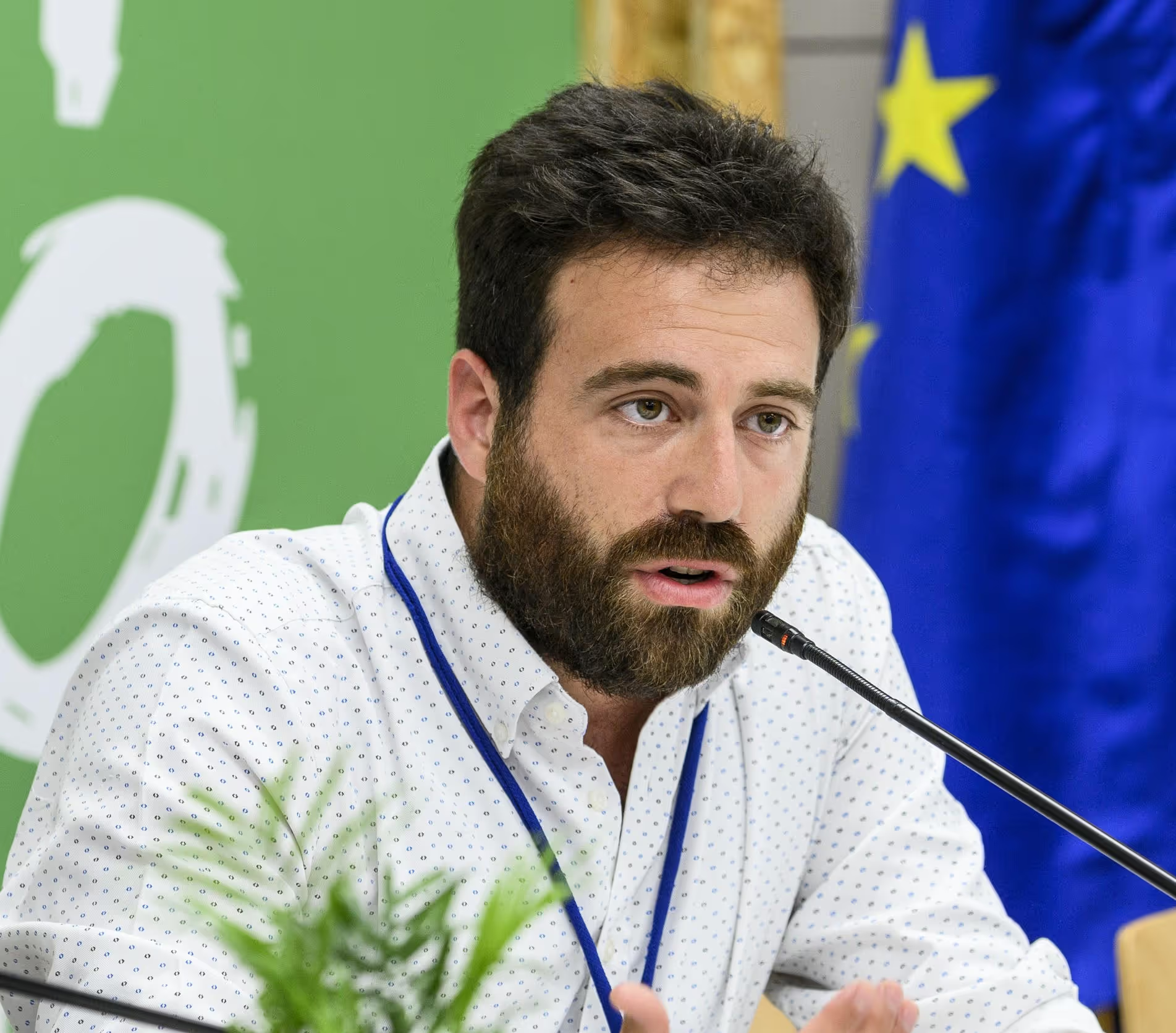


Environmental scientist with a PhD Marine Sciences. Extensive international experience at the intersection of ocean research, public policy, and environmental conservation.
As 30×30 Mediterranean Program Lead at the Med Sea Alliance, he coordinates regional efforts to ensure the effective protection of 30% of the Mediterranean Sea by 2030. His role involves strategic leadership, project design and management, stakeholder engagement, advocacy, and representation of the Alliance in national and international fora.
Over more than a decade, Pablo has combined academic research, policy advising, and practical conservation work to bridge science, policy, and society in addressing global environmental challenges. He has advised Spain’s Ministry for Ecological Transition on marine and environmental issues and collaborated with leading research institutions such as the Scripps Institution of Oceanography, ETH Zurich, and CSIC. His career includes participation in scientific expeditions across multiple continents and oceans, reinforcing his commitment to evidence-based approaches to marine conservation and sustainability.
Dedicated to translating science into action, Pablo brings a strong background in marine sciences, science communication, and innovation management, working to foster collaboration among NGOs, policymakers, and researchers to drive tangible impact for ocean protection.
As 30×30 Mediterranean Program Lead at the Med Sea Alliance, he coordinates regional efforts to ensure the effective protection of 30% of the Mediterranean Sea by 2030. His role involves strategic leadership, project design and management, stakeholder engagement, advocacy, and representation of the Alliance in national and international fora.
Over more than a decade, Pablo has combined academic research, policy advising, and practical conservation work to bridge science, policy, and society in addressing global environmental challenges. He has advised Spain’s Ministry for Ecological Transition on marine and environmental issues and collaborated with leading research institutions such as the Scripps Institution of Oceanography, ETH Zurich, and CSIC. His career includes participation in scientific expeditions across multiple continents and oceans, reinforcing his commitment to evidence-based approaches to marine conservation and sustainability.
Dedicated to translating science into action, Pablo brings a strong background in marine sciences, science communication, and innovation management, working to foster collaboration among NGOs, policymakers, and researchers to drive tangible impact for ocean protection.
AROUND THE WEB:
speaker
Carolina Soto-Navarro
Director of Wilder Nature at Rewilding Europe
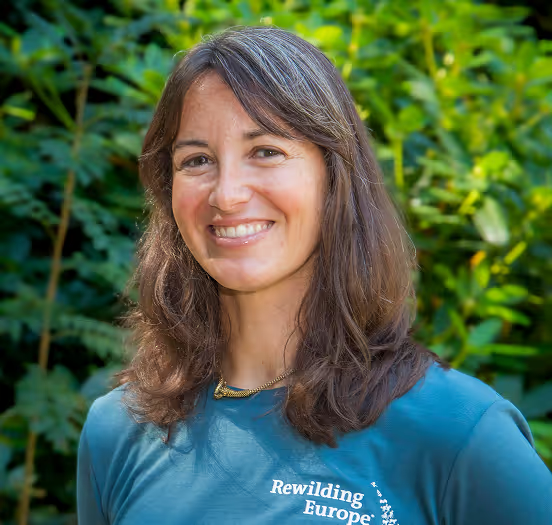


Biologist with over 15 years of global experience leading public and private conservation initiatives.
Carolina's passion for wildlife and natural spaces began in her childhood, growing up surrounded by nature in southern Spain. After obtaining a doctorate on the Iberian lynx in Spain, she co-founded a media production company focused on environmental education and subsequently worked as International Development Director at an ecotourism company specialized in wildlife photography.
She has worked in numerous countries such as the United Kingdom with various conservation organizations, academic institutions, major foundations and governmental agencies in the field of wildlife conservation, as well as at the interface between biodiversity and policy; in Southeast Asia with WWF-Vietnam as national coordinator of the IUCN Saola Working Group for Vietnam, Laos and Cambodia; and in Costa Rica, directing conservation programs focused on improving ecological connectivity in the biodiverse Osa Peninsula.
Carolina's passion for wildlife and natural spaces began in her childhood, growing up surrounded by nature in southern Spain. After obtaining a doctorate on the Iberian lynx in Spain, she co-founded a media production company focused on environmental education and subsequently worked as International Development Director at an ecotourism company specialized in wildlife photography.
She has worked in numerous countries such as the United Kingdom with various conservation organizations, academic institutions, major foundations and governmental agencies in the field of wildlife conservation, as well as at the interface between biodiversity and policy; in Southeast Asia with WWF-Vietnam as national coordinator of the IUCN Saola Working Group for Vietnam, Laos and Cambodia; and in Costa Rica, directing conservation programs focused on improving ecological connectivity in the biodiverse Osa Peninsula.
AROUND THE WEB:
speaker
Xochitl Elías
Postdoctoral researcher specializing in marine socio-ecological systems resilience and coordinator of the Central American node of the UN Ocean Decade ECOP program.



Dr. Xochitl Elías is a postdoctoral researcher focused on the resilience and adaptation of marine socio-ecological systems to climate change, with particular emphasis on artisanal fisheries. She holds a PhD in Marine Sciences, Technologies and Management from the University of Vigo, where she developed a thesis on adaptive responses of socio-ecological systems in biodiversity hotspots undergoing rapid transformation. She previously completed her Master's and Bachelor's degrees in Marine Biology at the University of Bremen (Germany). This training has been reinforced through stays and collaborations at internationally renowned centers such as the Helmholtz Institute for Functional Marine Biodiversity (HIFMB), the Leibniz Centre for Tropical Marine Research (ZMT), and the National Institute for Environmental Studies (Japan). Her publications in international journals such as Ecology and Society, People and Nature, and Communications Earth & Environment analyze the social, economic, and institutional factors that determine the adaptive and transformative capacity of small-scale fisheries.
Since 2022, she coordinates the Central American node of the Early Career Ocean Professionals (ECOP) program of the UN Decade of Ocean Science, promoting the participation of young professionals in national, regional, and global processes for ocean sustainability. Simultaneously, she explores the intersection between science and art through the creation and staging of contemporary dance pieces (for example, Medo Azul and La conectividad que nos mueve) presented at international conferences. Through these works, she investigates the potential of art to facilitate understanding of scientific concepts and convey the challenges facing socio-ecological systems in the context of climate change.
Since 2022, she coordinates the Central American node of the Early Career Ocean Professionals (ECOP) program of the UN Decade of Ocean Science, promoting the participation of young professionals in national, regional, and global processes for ocean sustainability. Simultaneously, she explores the intersection between science and art through the creation and staging of contemporary dance pieces (for example, Medo Azul and La conectividad que nos mueve) presented at international conferences. Through these works, she investigates the potential of art to facilitate understanding of scientific concepts and convey the challenges facing socio-ecological systems in the context of climate change.
AROUND THE WEB:
speaker
Pablo Schapira
Director of the "Sistema Ibérico Sur" Initiative in Rewilding Spain



Biologist with a degree from the Autonomous University of Barcelona, Pablo specialized in science communication after completing a Master's in Scientific Communication at Pompeu Fabra University.
However, after several years, his passion for conservation led him to pursue a Master's in Biodiversity and subsequently volunteer at Garamba National Park in the Democratic Republic of Congo. There he was hired by the NGO African Parks as a Conservation Manager and spent over 11 years in management positions across different national parks in Ethiopia (Gambella National Park), Benin (Pendjari National Park), and Mozambique (Bazaruto Archipelago National Park), where he spent 4.5 years implementing an ambitious marine conservation project before returning to Spain and joining Rewilding Spain.
However, after several years, his passion for conservation led him to pursue a Master's in Biodiversity and subsequently volunteer at Garamba National Park in the Democratic Republic of Congo. There he was hired by the NGO African Parks as a Conservation Manager and spent over 11 years in management positions across different national parks in Ethiopia (Gambella National Park), Benin (Pendjari National Park), and Mozambique (Bazaruto Archipelago National Park), where he spent 4.5 years implementing an ambitious marine conservation project before returning to Spain and joining Rewilding Spain.
AROUND THE WEB:
speaker
Sara Miñarro
Interdisciplinary marine ecologist bridging science and society to understand coastal community resilience to climate change
%201.avif)


Dr. Sara Miñarro is an interdisciplinary marine ecologist specializing in climate change adaptation, small-scale fisheries, and social-ecological dynamics of coastal systems. Holding a BSc in Marine Sciences from the University of Las Palmas de Gran Canaria, a MSc in Applied Ecology, and a PhD in Environmental Sciences from the University of Bremen, her research integrates marine ecology with anthropology, economics, and psychology to explore community and ecosystem responses to environmental change.
Currently an advanced researcher at the Climate Resilience Center, Eurecat, Dr. Miñarro has led and contributed to several international marine research projects. In the Solomon Islands and Indonesia, she combined scientific diving, habitat characterization, and field-based social research to understand ecosystem responses and community resilience to large-scale environmental changes, while developing governance tools for resource management. As a postdoctoral researcher, she examined the effects of globalization on fishing communities, their well-being, and marine ecosystems, supervising multiple Master's theses and leading international field campaigns. As fisheries advisor for the LICCI project, she designed and coordinated global data collection on climate impacts in small-scale fisheries and indigenous communities. She also led national projects in Spain, such as E:SBN or BlauCat, analyzing and promoting Nature-Based Solutions and conservation in coastal and urban contexts to support adaptation and sustainable management of coastal areas.
Much of Dr. Miñarro's research is rooted in fieldwork across diverse and often vulnerable coastal areas, from remote islands in the Pacific and Southeast Asia to sites along the Catalan coast. She combines scientific diving and on-site data collection with interdisciplinary approaches to understand the adaptation and resilience of local communities to environmental change.
Currently an advanced researcher at the Climate Resilience Center, Eurecat, Dr. Miñarro has led and contributed to several international marine research projects. In the Solomon Islands and Indonesia, she combined scientific diving, habitat characterization, and field-based social research to understand ecosystem responses and community resilience to large-scale environmental changes, while developing governance tools for resource management. As a postdoctoral researcher, she examined the effects of globalization on fishing communities, their well-being, and marine ecosystems, supervising multiple Master's theses and leading international field campaigns. As fisheries advisor for the LICCI project, she designed and coordinated global data collection on climate impacts in small-scale fisheries and indigenous communities. She also led national projects in Spain, such as E:SBN or BlauCat, analyzing and promoting Nature-Based Solutions and conservation in coastal and urban contexts to support adaptation and sustainable management of coastal areas.
Much of Dr. Miñarro's research is rooted in fieldwork across diverse and often vulnerable coastal areas, from remote islands in the Pacific and Southeast Asia to sites along the Catalan coast. She combines scientific diving and on-site data collection with interdisciplinary approaches to understand the adaptation and resilience of local communities to environmental change.
AROUND THE WEB:
speaker
Julio Agujetas
Marine biologist and fisheries sustainability expert, Mediterranean fisheries coordinator for the Marine Stewardship Council.
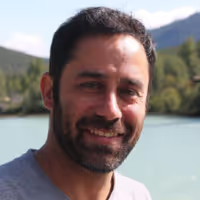


Julio Agujetas is a Marine Biologist and Senior Mediterranean Fisheries Manager for Spain at the Marine Stewardship Council (MSC), an international non-profit organization dedicated to sustainable fishing certification. His academic background in marine sciences has enabled him to develop specialization in sustainable fisheries resource management, becoming a technical reference for implementing sustainability standards in Spanish Mediterranean fisheries. His work focuses on the region spanning from the Mediterranean to the Gulf of Cádiz, collaborating closely with fishing guilds, scientific organizations, and non-governmental organizations to promote responsible fishing practices.
His work centers on coordinating and implementing fishery improvement projects that facilitate the transition of fisheries toward sustainable models based on the MSC Fisheries Standard. His most notable work lines include scientific evaluation of Mediterranean fisheries, development of specific action plans to address sustainability deficiencies, and facilitation of participatory processes involving all actors in the fishing value chain. His multisectoral approach combines scientific knowledge, fisheries management, and social participation to generate practical solutions that improve the status of target populations, reduce ecosystem impacts, and strengthen fisheries management systems.
Agujetas coordinates the Medfish project, a pioneering initiative developed jointly by MSC and WWF Spain since 2015 to address the sustainability crisis in the Mediterranean, where 78% of studied populations are overexploited. The project has evaluated over 370 Spanish Mediterranean fisheries, developing specific action plans for fisheries such as red shrimp from Palamós, mantis shrimp from Motril, anchovy from the Alboran Sea, and small pelagics from Castellón. His technical leadership has been fundamental in creating participatory processes that include fishing guilds, regional and state administrations, oceanographic centers of the Spanish Institute of Oceanography, and local organizations such as Soldecocos and ANSE.
His commitment to transforming the Mediterranean fishing sector extends beyond the technical sphere to coordinating the MedPath project, a regional initiative that integrates fishery improvement projects in Spain, France, Italy, and Greece. As MedPath coordinator and MSC representative in specialized forums, he actively participates in international conferences such as the UN Ocean Decade Conference, where he presents advances in data collection and sustainable management of Mediterranean fisheries. His work constitutes a replicable model for implementing sustainability standards in artisanal fisheries, demonstrating that collaboration between science, the fishing sector, and administrations can generate significant improvements in marine resource conservation and economic viability of fishing communities.
His work centers on coordinating and implementing fishery improvement projects that facilitate the transition of fisheries toward sustainable models based on the MSC Fisheries Standard. His most notable work lines include scientific evaluation of Mediterranean fisheries, development of specific action plans to address sustainability deficiencies, and facilitation of participatory processes involving all actors in the fishing value chain. His multisectoral approach combines scientific knowledge, fisheries management, and social participation to generate practical solutions that improve the status of target populations, reduce ecosystem impacts, and strengthen fisheries management systems.
Agujetas coordinates the Medfish project, a pioneering initiative developed jointly by MSC and WWF Spain since 2015 to address the sustainability crisis in the Mediterranean, where 78% of studied populations are overexploited. The project has evaluated over 370 Spanish Mediterranean fisheries, developing specific action plans for fisheries such as red shrimp from Palamós, mantis shrimp from Motril, anchovy from the Alboran Sea, and small pelagics from Castellón. His technical leadership has been fundamental in creating participatory processes that include fishing guilds, regional and state administrations, oceanographic centers of the Spanish Institute of Oceanography, and local organizations such as Soldecocos and ANSE.
His commitment to transforming the Mediterranean fishing sector extends beyond the technical sphere to coordinating the MedPath project, a regional initiative that integrates fishery improvement projects in Spain, France, Italy, and Greece. As MedPath coordinator and MSC representative in specialized forums, he actively participates in international conferences such as the UN Ocean Decade Conference, where he presents advances in data collection and sustainable management of Mediterranean fisheries. His work constitutes a replicable model for implementing sustainability standards in artisanal fisheries, demonstrating that collaboration between science, the fishing sector, and administrations can generate significant improvements in marine resource conservation and economic viability of fishing communities.
AROUND THE WEB:
speaker
Ana Tuñas
Senior environmental journalism correspondent at Agencia EFE.
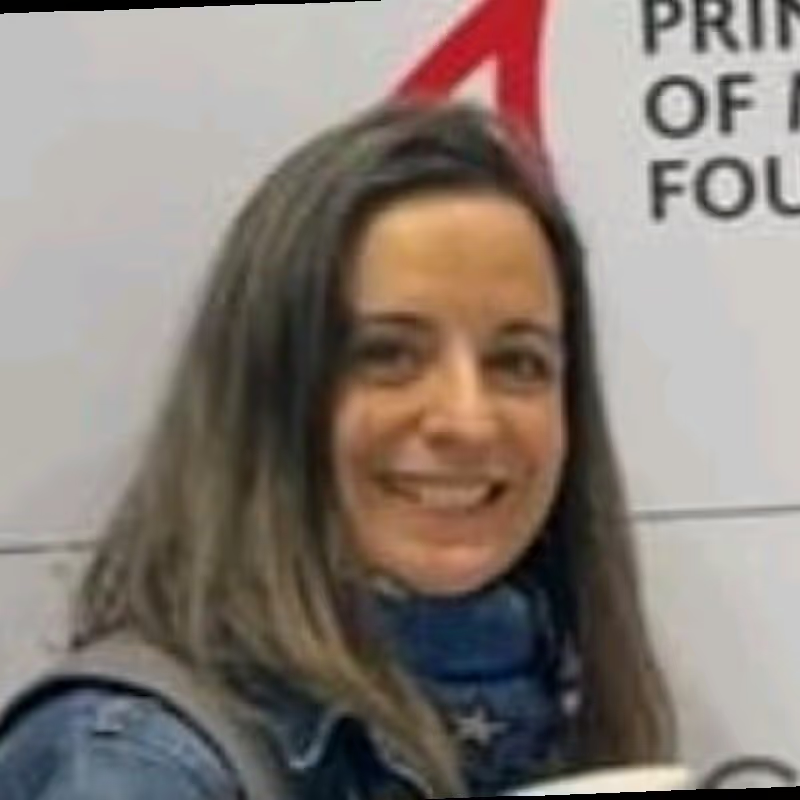


Ana Tuñas Matilla holds a degree from Universidad Complutense de Madrid and currently serves as a senior correspondent at Agencia EFE, where she is part of the EFEverde team, the agency's environmental information platform. Her work focuses on developing multimedia reports related to European LIFE projects, including Renaturwat, Kantauribai, and Invasaqua, as well as producing information on multiple environmental topics such as sustainability of production and consumption systems, and the One Health concept.
Her professional trajectory includes notable coverage of international environmental events, having comprehensively covered the Egypt Climate Summit (COP27), where advances were made in creating climate financing mechanisms. Tuñas Matilla has developed particular expertise in topics related to invasive alien species, ecological transition, and responsible consumption, contributing to public debate about the need to reconnect with nature and adopt sustainable practices for environmental preservation.
Her professional trajectory includes notable coverage of international environmental events, having comprehensively covered the Egypt Climate Summit (COP27), where advances were made in creating climate financing mechanisms. Tuñas Matilla has developed particular expertise in topics related to invasive alien species, ecological transition, and responsible consumption, contributing to public debate about the need to reconnect with nature and adopt sustainable practices for environmental preservation.
AROUND THE WEB:
speaker
Rubén Bermejo-Poza
Doctor of Veterinary Medicine specializing in aquaculture and animal welfare, pioneer in research on humane slaughter methods and meat quality in rainbow trout.



Rubén Bermejo-Poza holds a PhD in Veterinary Medicine from the Complutense University of Madrid. He currently serves as Assistant Professor in the Department of Animal Production at the Faculty of Veterinary Medicine of the Complutense University of Madrid. His teaching work is combined with intense research activity as a member of the BIANDOCARN-UCM research group, where he develops studies on fish physiology and behavior, and animal welfare in both swine and aquaculture.
His scientific contribution focuses on animal welfare in aquaculture, specifically on optimizing pre-slaughter management to obtain the best meat quality without compromising fish welfare. Among his most notable publications are works on occupational enrichment through underwater currents in recirculation systems, effects of fasting on intermediary metabolism enzymes, and welfare guides in Spanish aquaculture. His research has been recognized in high-impact journals such as Aquaculture, Journal of Science Food and Agriculture, and Fishes.
He has recently participated in developing the "Guide on fish welfare in Spanish aquaculture" for APROMAR, consolidating his position as a national reference in aquacultural animal welfare and humane slaughter methods.
His scientific contribution focuses on animal welfare in aquaculture, specifically on optimizing pre-slaughter management to obtain the best meat quality without compromising fish welfare. Among his most notable publications are works on occupational enrichment through underwater currents in recirculation systems, effects of fasting on intermediary metabolism enzymes, and welfare guides in Spanish aquaculture. His research has been recognized in high-impact journals such as Aquaculture, Journal of Science Food and Agriculture, and Fishes.
He has recently participated in developing the "Guide on fish welfare in Spanish aquaculture" for APROMAR, consolidating his position as a national reference in aquacultural animal welfare and humane slaughter methods.
AROUND THE WEB:
speaker
Lucía Arana
Journalist, animal rights activist, and Head of Press and Communications at INTERCIDS, Legal Operators for Animals, and Veganuary Spain



Lucía Arana Igarza is a journalist specialized in communication for NGOs and animal rights advocacy. She currently serves as Communications Manager for INTERCIDS, Legal Operators for Animals, and as Press Chief for Veganuary in Spain. Her connection with INTERCIDS has allowed her to delve deeper into the intersection between law and animal protection.
Her most notable work includes the creation and production of INTERCIDS' Podcast "Derecho y Animales" (Law and Animals), the first in Spain about animal rights from a legal perspective, a project that received a grant from the Culture & Animals Foundation. She is also a regular contributor to El Caballo de Nietzsche, a space dedicated to animal rights at eldiario.es.
As an activist, she has volunteered in various capacities, including at Farm Sanctuary in California, one of the world's most emblematic farm animal sanctuaries, and at the chimpanzee rescue and rehabilitation center Fundación Mona in Girona.
Her most notable work includes the creation and production of INTERCIDS' Podcast "Derecho y Animales" (Law and Animals), the first in Spain about animal rights from a legal perspective, a project that received a grant from the Culture & Animals Foundation. She is also a regular contributor to El Caballo de Nietzsche, a space dedicated to animal rights at eldiario.es.
As an activist, she has volunteered in various capacities, including at Farm Sanctuary in California, one of the world's most emblematic farm animal sanctuaries, and at the chimpanzee rescue and rehabilitation center Fundación Mona in Girona.
AROUND THE WEB:
speaker
Alba Aguión
FAO consultant, postdoc at Duke University. Starting postdoc at Universidad Autónoma de Barcelona in January 2026
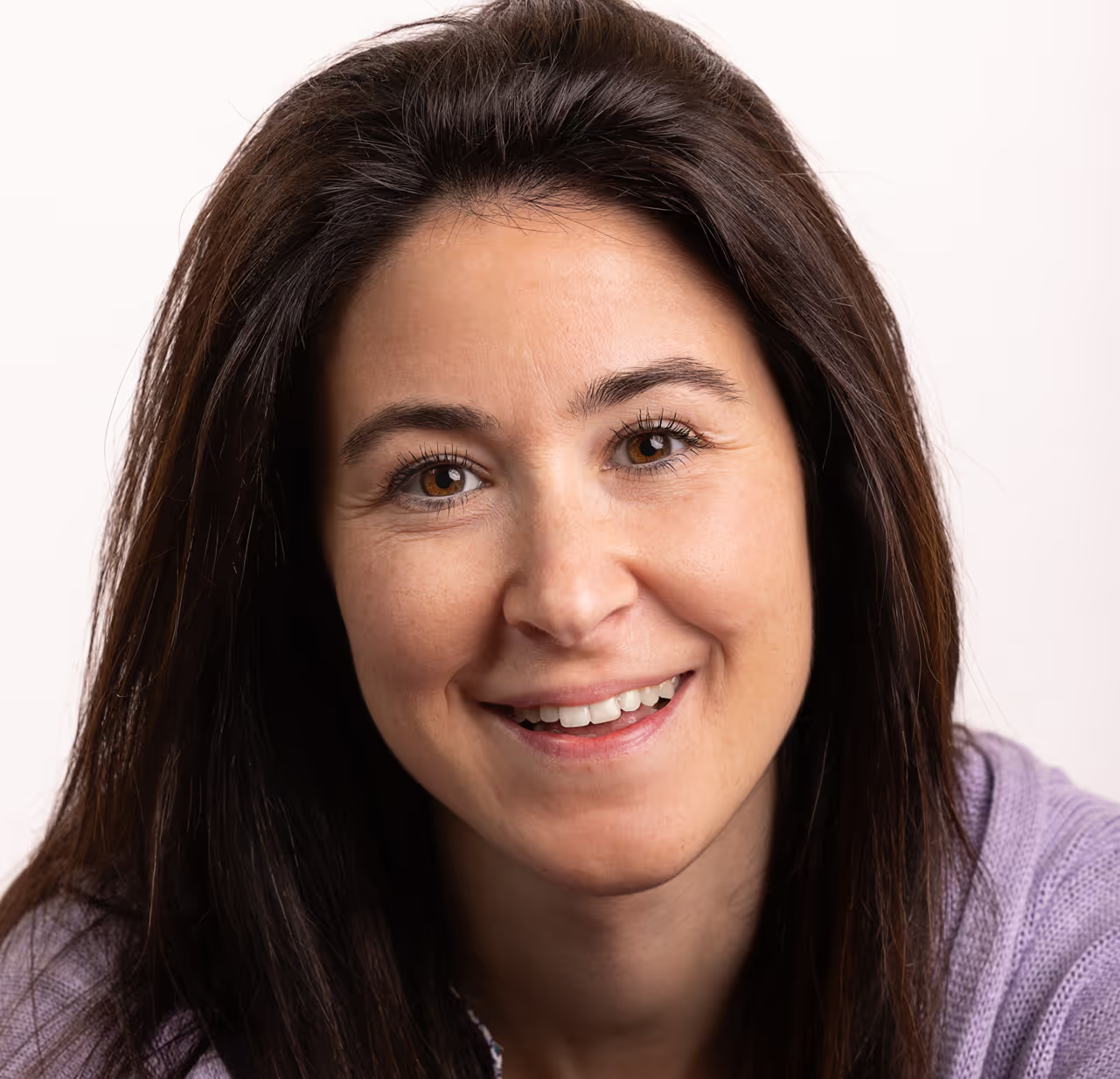


Alba Aguión is an interdisciplinary sustainability scientist interested in human–nature relationships and in developing equitable governance to support the sustainable use of our oceans.
During her postdoc at Duke University (USA), she worked on the global Illuminating Hidden Harvests initiative, led in collaboration with FAO and WorldFish, which for the first time quantified the worldwide contributions of small-scale fisheries to sustainable development. The study, featured on the cover of Nature in 2025, showed that small-scale fisheries account for 40% of global catch, sustain the livelihoods of 1 in 12 people, and are essential for global nutrition.
Alba holds a PhD from the University of Vigo, where she studied the ecology and management of benthic small-scale fisheries in southern Europe. She is currently a consultant for FAO on small-scale fisheries, and in January 2026 she will join ICTA-UAB as a Daniel Carasso Fellow, focusing on how social innovation emerging from fishing and agriculture communities can transform food systems by placing people at the centre.
During her postdoc at Duke University (USA), she worked on the global Illuminating Hidden Harvests initiative, led in collaboration with FAO and WorldFish, which for the first time quantified the worldwide contributions of small-scale fisheries to sustainable development. The study, featured on the cover of Nature in 2025, showed that small-scale fisheries account for 40% of global catch, sustain the livelihoods of 1 in 12 people, and are essential for global nutrition.
Alba holds a PhD from the University of Vigo, where she studied the ecology and management of benthic small-scale fisheries in southern Europe. She is currently a consultant for FAO on small-scale fisheries, and in January 2026 she will join ICTA-UAB as a Daniel Carasso Fellow, focusing on how social innovation emerging from fishing and agriculture communities can transform food systems by placing people at the centre.
AROUND THE WEB:
speaker
Mireia Sanchez
Project Manager at Bluewave Alliance, specializing in Mediterranean marine conservation and business sustainability.



Mireia Sanchez is an ocean lover and works as Project Manager at Bluewave Alliance, a non-profit initiative powered by ISDIN that promotes the regeneration of the Mediterranean Sea. From this role, she collaborates with scientists, companies, and other key stakeholders to foster collective action in marine conservation and awareness.
She holds a degree in International Business Economics from Universitat Pompeu Fabra (UPF), a master’s degree in Corporate Social Responsibility from Universitat Oberta Catalunya (UOC), and a specialization in Economics from the University of California, Los Angeles (UCLA). This academic path has allowed her to combine business knowledge with a strong commitment to sustainability and environmental impact.
Previously, she built her career in strategic consulting at KPMG and Accenture, where she led transformation projects across sectors such as energy, banking, and consumer goods.
Beyond her professional life, she is a classical ballet dancer, holds a professional music degree in piano from the Liceu Conservatory, and enjoys scuba diving as another way to connect with her passion for the sea.
She holds a degree in International Business Economics from Universitat Pompeu Fabra (UPF), a master’s degree in Corporate Social Responsibility from Universitat Oberta Catalunya (UOC), and a specialization in Economics from the University of California, Los Angeles (UCLA). This academic path has allowed her to combine business knowledge with a strong commitment to sustainability and environmental impact.
Previously, she built her career in strategic consulting at KPMG and Accenture, where she led transformation projects across sectors such as energy, banking, and consumer goods.
Beyond her professional life, she is a classical ballet dancer, holds a professional music degree in piano from the Liceu Conservatory, and enjoys scuba diving as another way to connect with her passion for the sea.
AROUND THE WEB:
speaker
Pablo Saralegui-Díez
Researcher specializing in sustainable food transition and socio-cultural change in food systems.
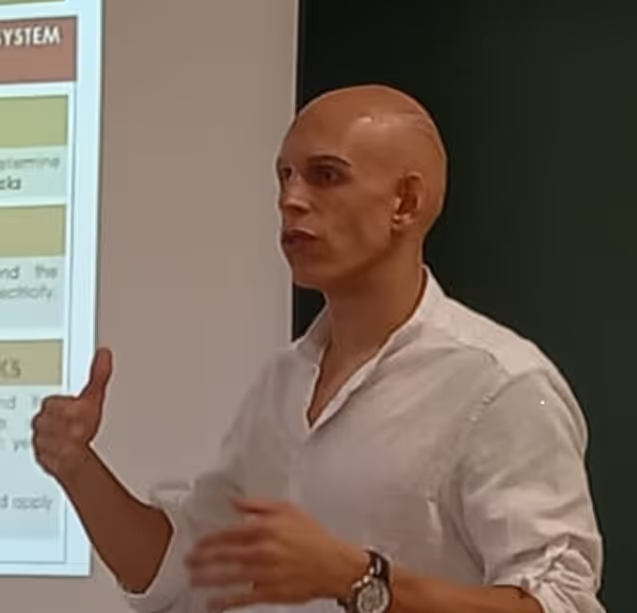


Pablo Saralegui-Díez is a researcher focused on just, sustainable, and healthy food transition and socio-cultural change in food systems.
Through collaborative work with social organizations, research centers, and public administrations as part of Alimentta, his research centers on generating and coordinating scientific knowledge that supports food system transition, as well as fostering synergies among diverse stakeholders with common objectives, always oriented toward deep sustainability.
Through collaborative work with social organizations, research centers, and public administrations as part of Alimentta, his research centers on generating and coordinating scientific knowledge that supports food system transition, as well as fostering synergies among diverse stakeholders with common objectives, always oriented toward deep sustainability.
AROUND THE WEB:
speaker
Viviana Páez
Biologist specialized in marine conservation of the Eastern Tropical Pacific with a focus on migratory species.
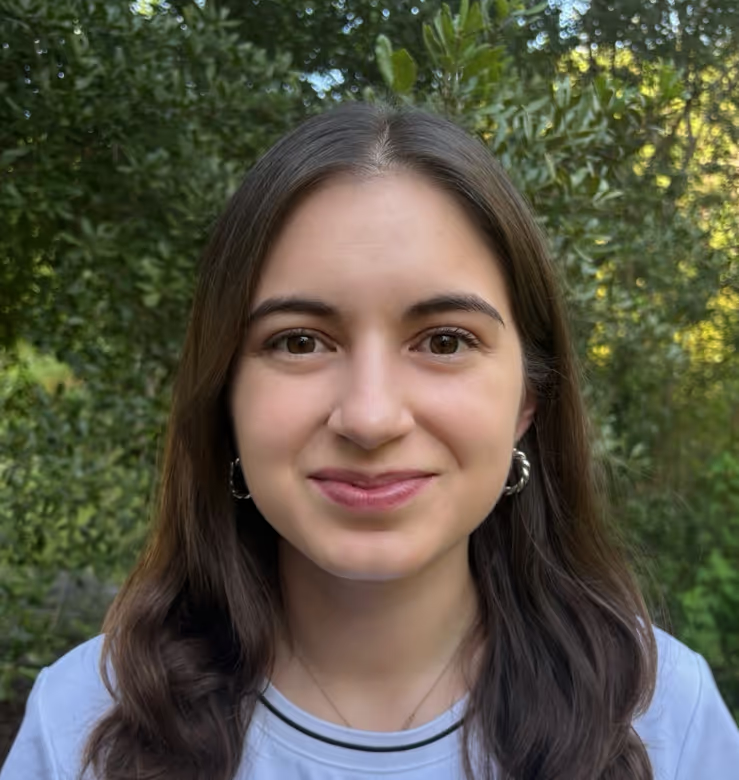


Viviana Páez Cordovez is a biologist specializing in marine ecology with training in biodiversity conservation in the Eastern Tropical Pacific (ETP). She is currently pursuing a Master's degree in Conservation Biology.
Throughout her professional career, she has participated in international projects focused on marine life protection. She has served as a speaker and participant in various ETP workshops among key regional stakeholders, CMAR, and other institutions. Additionally, she has worked on socio-environmental and ecological initiatives in the Galápagos Islands, collaborating with fishing communities, tourism, and pelagic species research. She has also served as a tutor for the Galápagos National Park naturalist guide course.
She has collaborated in national and regional processes focused on the conservation of marine migratory species, with experience in designing and coordinating monitoring programs and strengthening scientific collaboration networks and conservation policy advocacy. She currently works at MigraMar, an NGO dedicated to the conservation of marine migratory species in the Eastern Tropical Pacific. She is also an ECOP (Early Career Professional) and part of the Marine Migratory Species Network (REMM).
Viviana hopes that through these initiatives, cooperation between countries will be promoted and comprehensive strategies developed to ensure ecosystem resilience and ocean sustainability.
Throughout her professional career, she has participated in international projects focused on marine life protection. She has served as a speaker and participant in various ETP workshops among key regional stakeholders, CMAR, and other institutions. Additionally, she has worked on socio-environmental and ecological initiatives in the Galápagos Islands, collaborating with fishing communities, tourism, and pelagic species research. She has also served as a tutor for the Galápagos National Park naturalist guide course.
She has collaborated in national and regional processes focused on the conservation of marine migratory species, with experience in designing and coordinating monitoring programs and strengthening scientific collaboration networks and conservation policy advocacy. She currently works at MigraMar, an NGO dedicated to the conservation of marine migratory species in the Eastern Tropical Pacific. She is also an ECOP (Early Career Professional) and part of the Marine Migratory Species Network (REMM).
Viviana hopes that through these initiatives, cooperation between countries will be promoted and comprehensive strategies developed to ensure ecosystem resilience and ocean sustainability.
AROUND THE WEB:
speaker
Mónica Navarro
Blue Planet Advocate – International Consultant in Communication, Sustainability and Purpose-driven Leadership
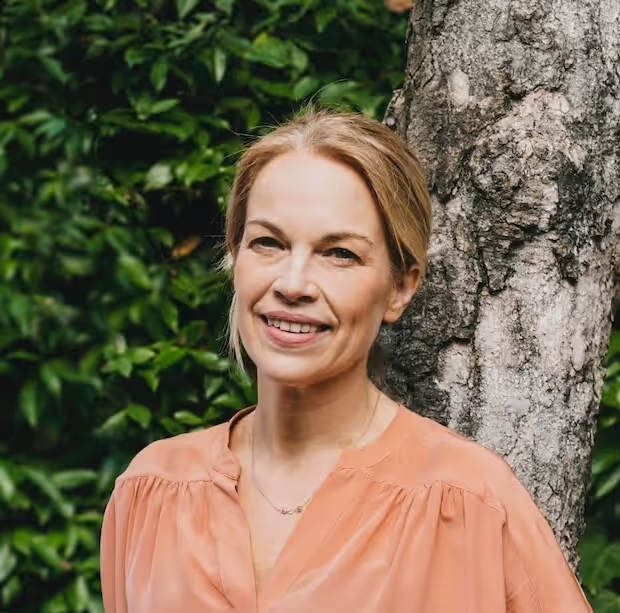


Mónica Navarro has developed an international career at the intersection of communication, purpose, and sustainability. A sociologist by training, she worked for 17 years in multinational communication companies, leading brand strategies and building solid identities for global companies.
Her commitment to the planet and people has intensified over the past six years, accompanying her daughter, Olivia Mandle, a young environmental activist who fights against cetacean captivity and for ocean protection. Both share a passion and activism in the face of the climate crisis.
Mónica works and considers it highly necessary to rethink consumption and production models, and dedicates her time to empowering new generations to lead this change.
Currently, Mónica is a consultant on purpose-driven projects, collaborating with initiatives that promote sustainability and regenerative economy. She is a youth mentor in the Be Visioneers program of the Mercedes-Benz Global Foundation, a member of Women Action Sustainability (WAS), and a mentor to university students to help them develop projects aligned with their values and the positive impact they wish to leave on the world.
As a speaker, she shares her knowledge and experiences at international conferences, inspiring diverse audiences to act in the face of the environmental and social challenges of our time. Raised by the sea and deeply connected to the ocean, she believes it is an essential pillar of life on Earth and that its protection is inseparable from humanity's future.
Her commitment to the planet and people has intensified over the past six years, accompanying her daughter, Olivia Mandle, a young environmental activist who fights against cetacean captivity and for ocean protection. Both share a passion and activism in the face of the climate crisis.
Mónica works and considers it highly necessary to rethink consumption and production models, and dedicates her time to empowering new generations to lead this change.
Currently, Mónica is a consultant on purpose-driven projects, collaborating with initiatives that promote sustainability and regenerative economy. She is a youth mentor in the Be Visioneers program of the Mercedes-Benz Global Foundation, a member of Women Action Sustainability (WAS), and a mentor to university students to help them develop projects aligned with their values and the positive impact they wish to leave on the world.
As a speaker, she shares her knowledge and experiences at international conferences, inspiring diverse audiences to act in the face of the environmental and social challenges of our time. Raised by the sea and deeply connected to the ocean, she believes it is an essential pillar of life on Earth and that its protection is inseparable from humanity's future.
AROUND THE WEB:
speaker
Ona Santisteban
Biology student and Young Ocean Advocate who uses digital innovation to bridge the gap between fishers, scientists, and conservation.



Ona is a passionate ocean advocate from Spain, currently pursuing a Biology degree in France. Her dedication to marine conservation began in high school with a research project on sea turtle bycatch. After graduation, she took a gap year to gain hands-on experience, contributing to sea turtle conservation in Costa Rica and marine debris cleanups in Norway.
While studying at university, she completed an externship with the National Geographic Society and The Nature Conservancy, exploring the power of GIS and storytelling for conservation. She created a StoryMap on sea turtle bycatch, recognized in the 2024 Esri ArcGIS StoryMaps Competition. With seed funding, she is now developing a project to engage fishers in using a digital platform to report bycatch incidents and collaborate with scientists for better conservation outcomes.
Accredited as a Young Ocean Advocate by the Directorate General of Fisheries and Maritime Affairs of the European Commission, she is also a member of the Young Citizens’ Council for the Ocean, co-developing the Blue Citizenship Compass with young Europeans to promote ocean protection.
Driven by a deep commitment to the ocean, Ona believes that through collaboration and innovation, we can create meaningful change to ensure the future of the ocean.
While studying at university, she completed an externship with the National Geographic Society and The Nature Conservancy, exploring the power of GIS and storytelling for conservation. She created a StoryMap on sea turtle bycatch, recognized in the 2024 Esri ArcGIS StoryMaps Competition. With seed funding, she is now developing a project to engage fishers in using a digital platform to report bycatch incidents and collaborate with scientists for better conservation outcomes.
Accredited as a Young Ocean Advocate by the Directorate General of Fisheries and Maritime Affairs of the European Commission, she is also a member of the Young Citizens’ Council for the Ocean, co-developing the Blue Citizenship Compass with young Europeans to promote ocean protection.
Driven by a deep commitment to the ocean, Ona believes that through collaboration and innovation, we can create meaningful change to ensure the future of the ocean.
AROUND THE WEB:
SECURE your place at the conference.
Tickets now available!!
October 23 to 25
Barcelona
Barcelona
registration

